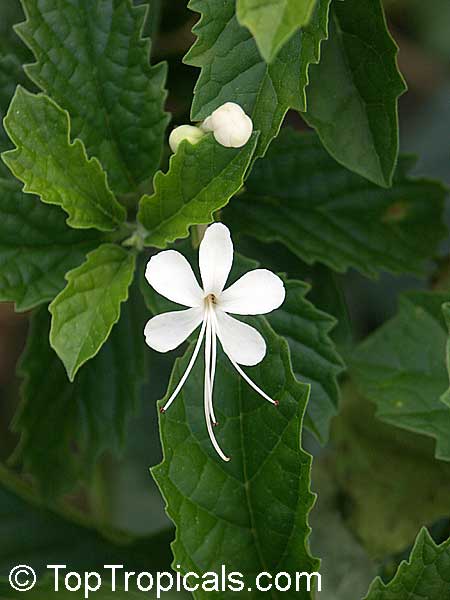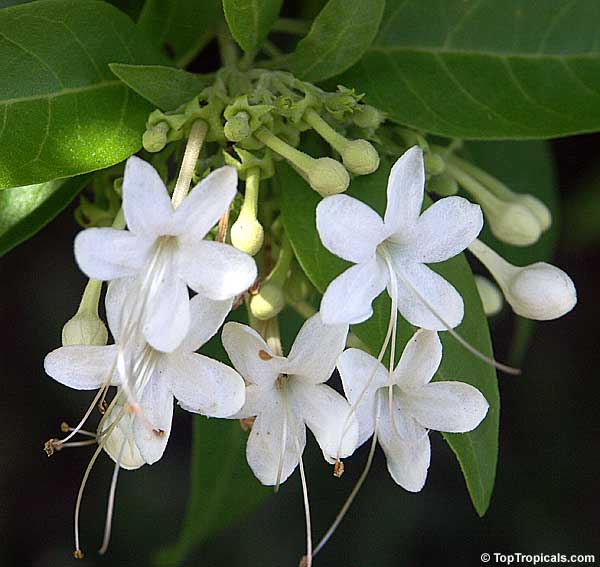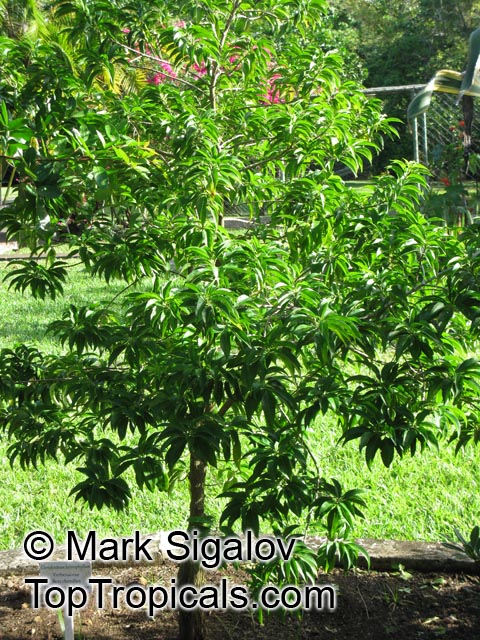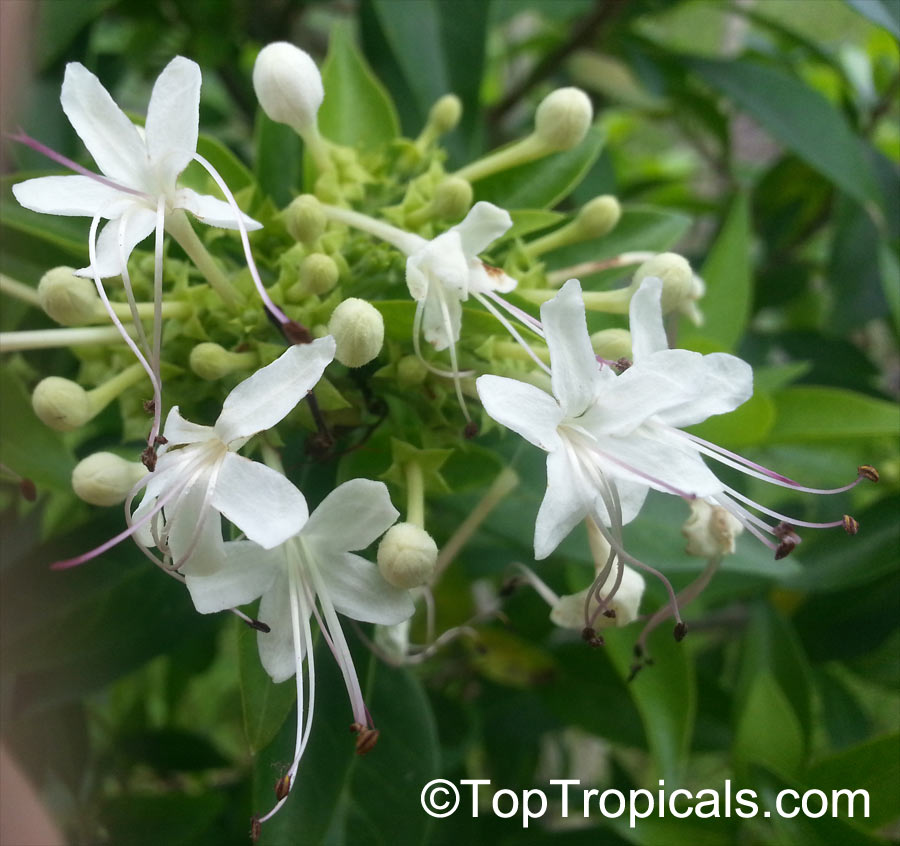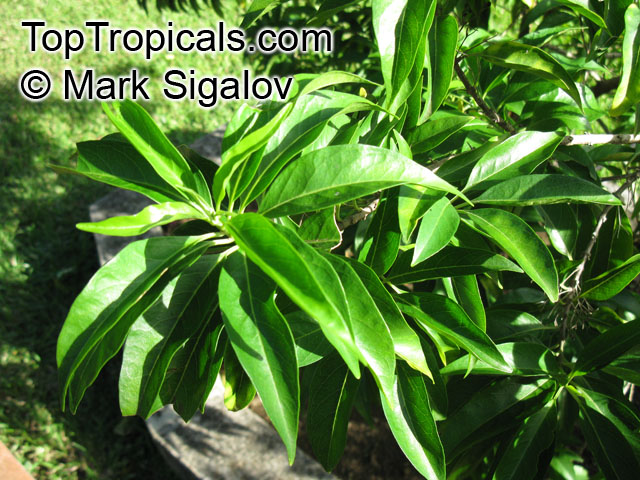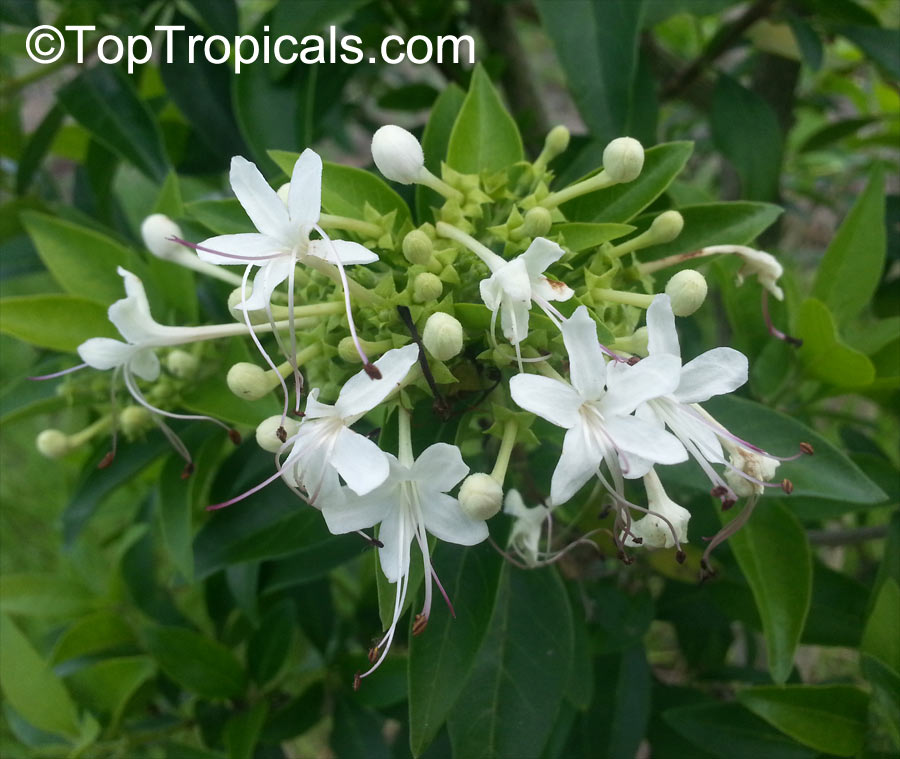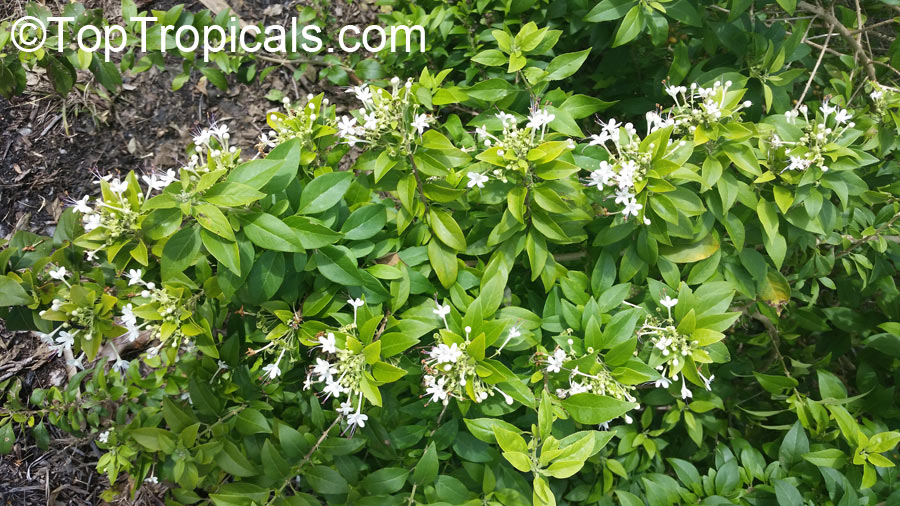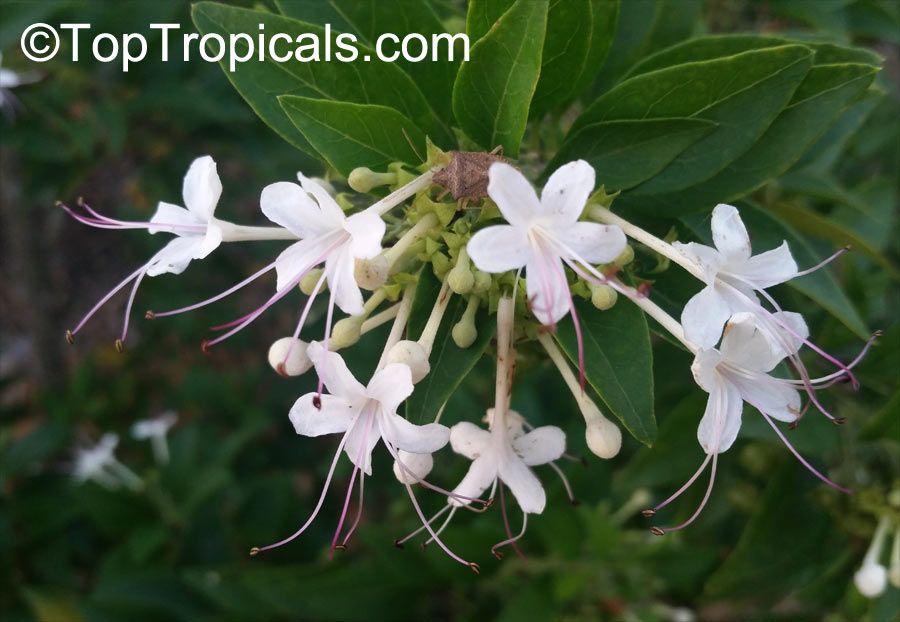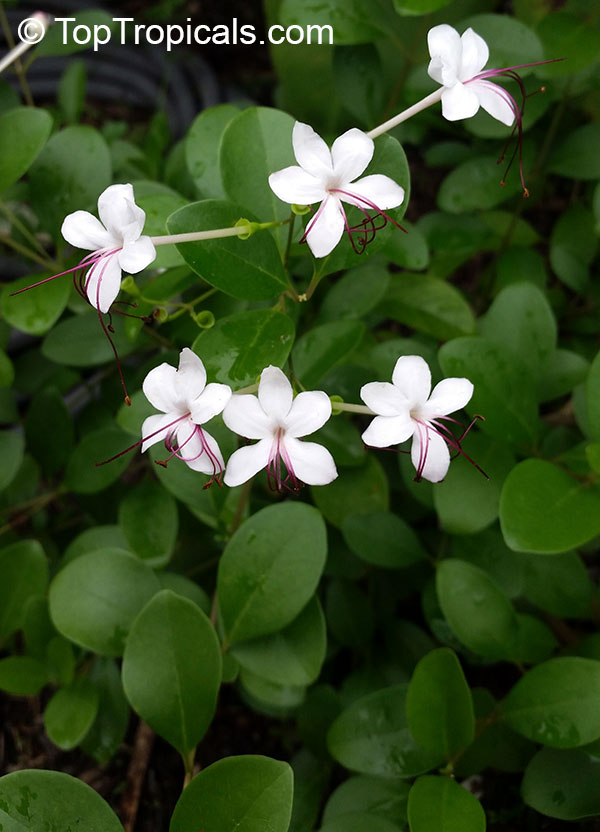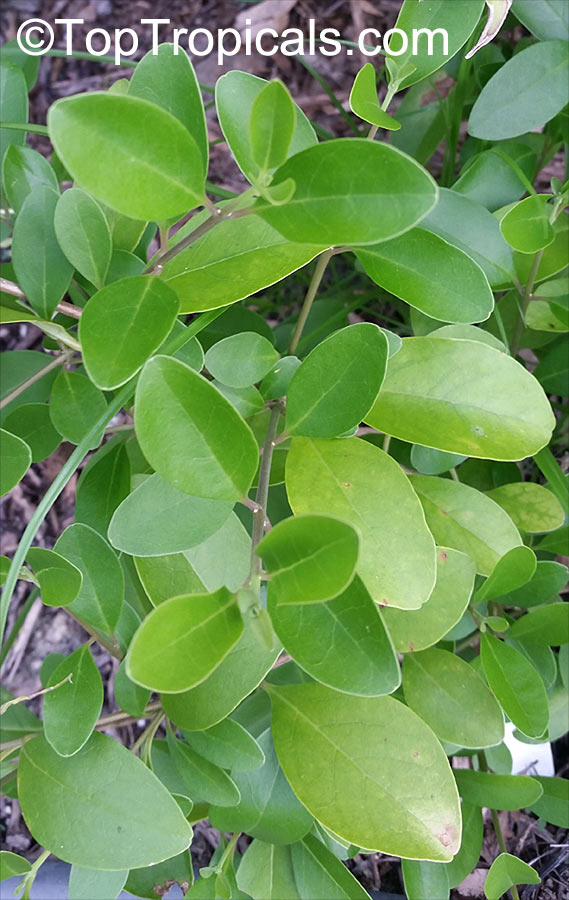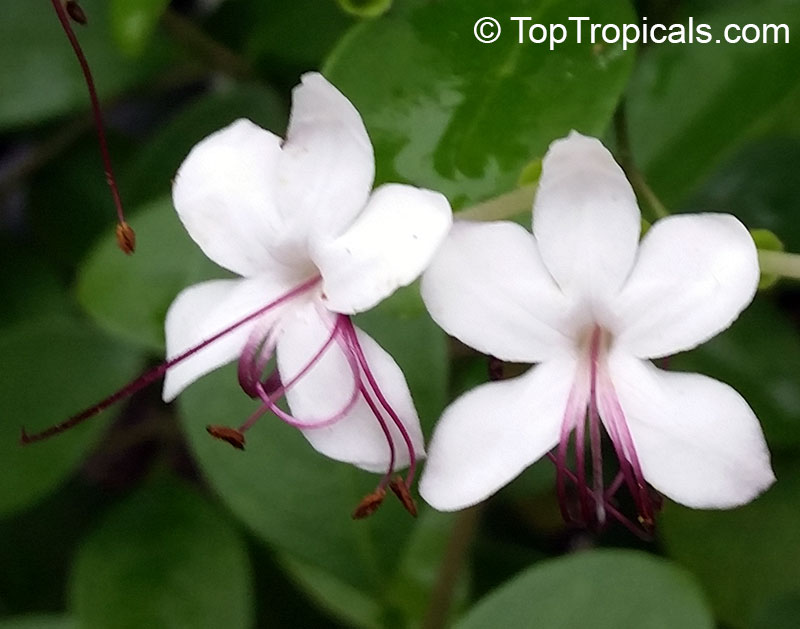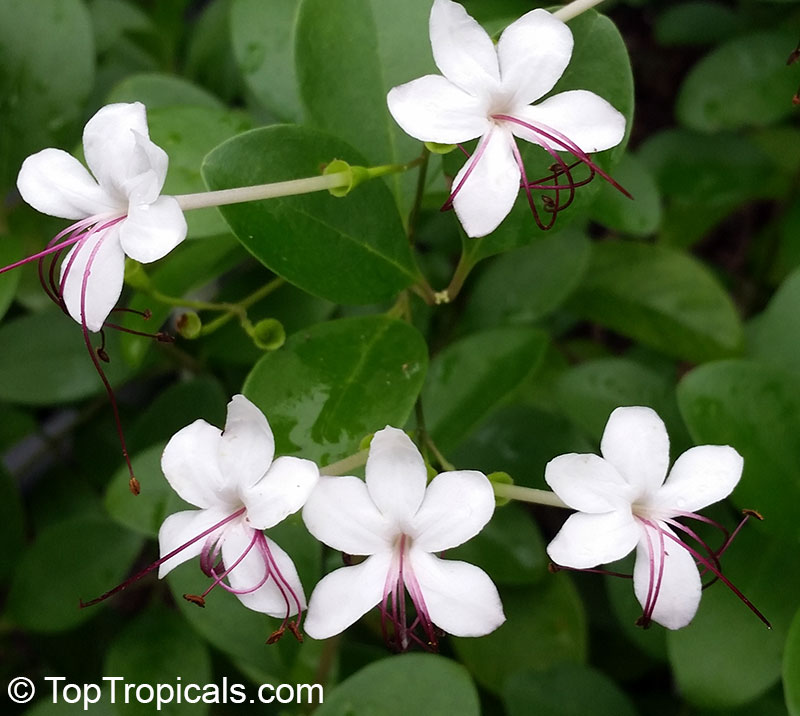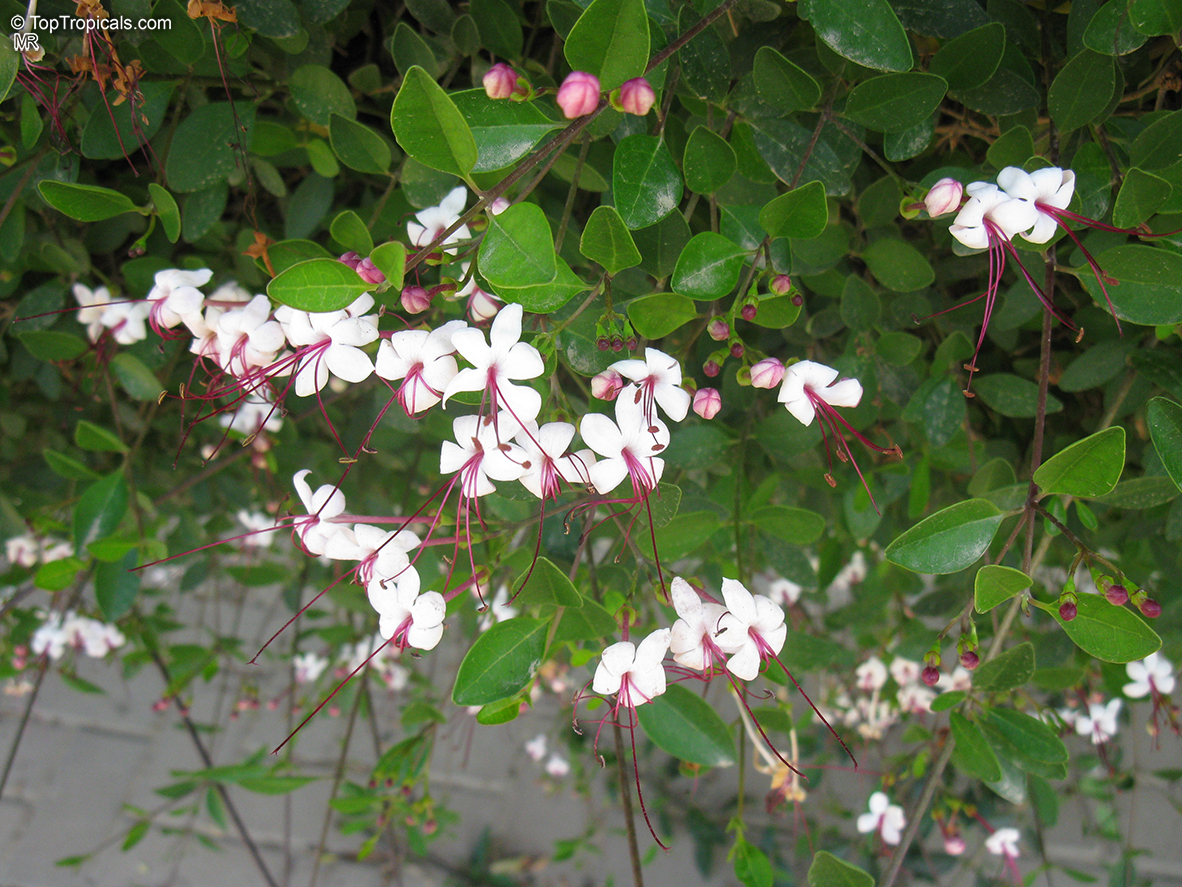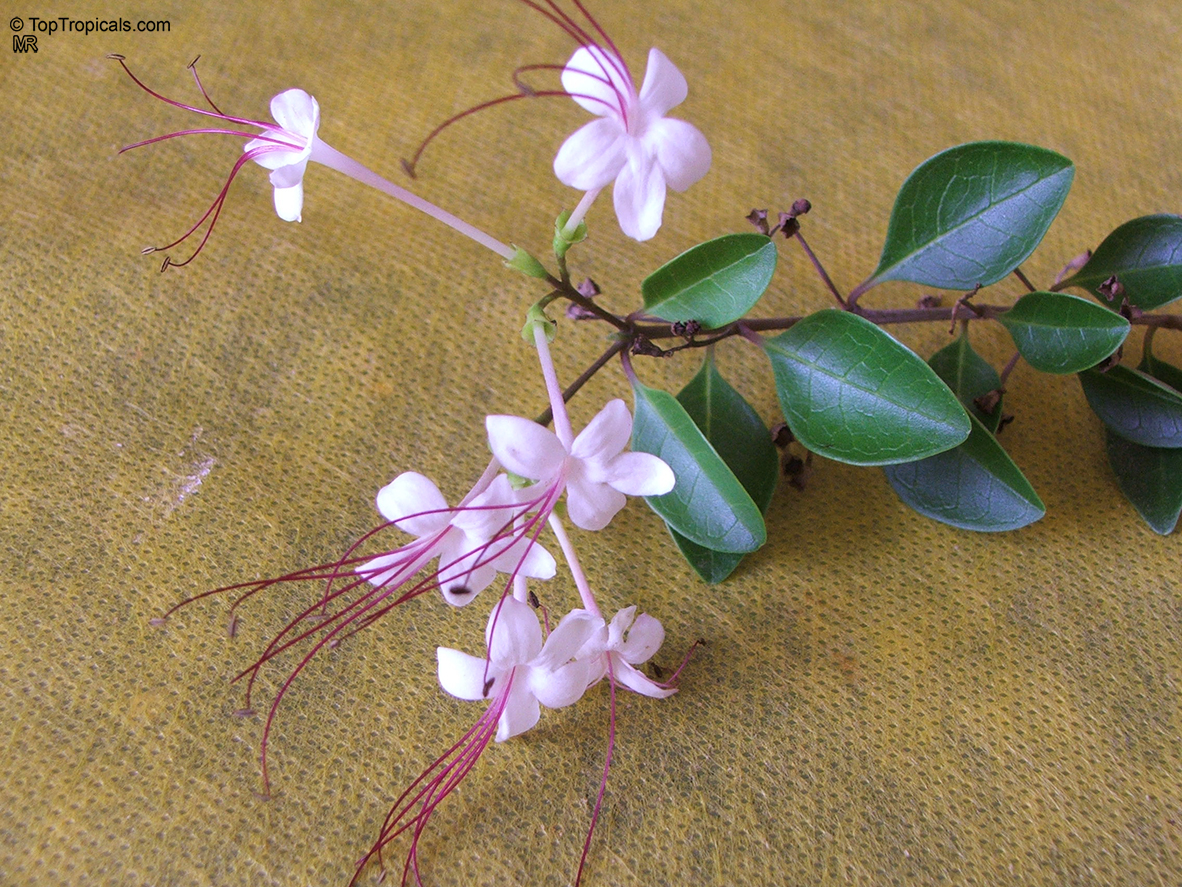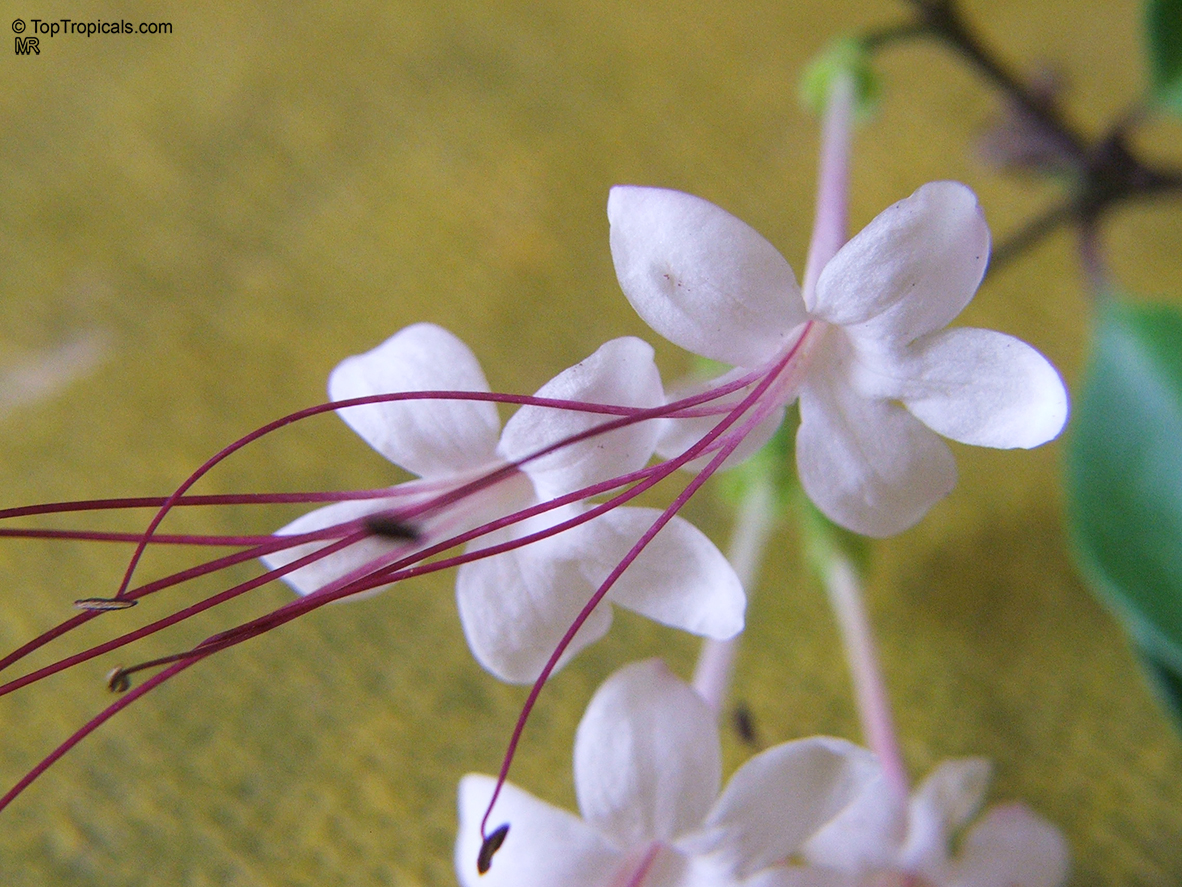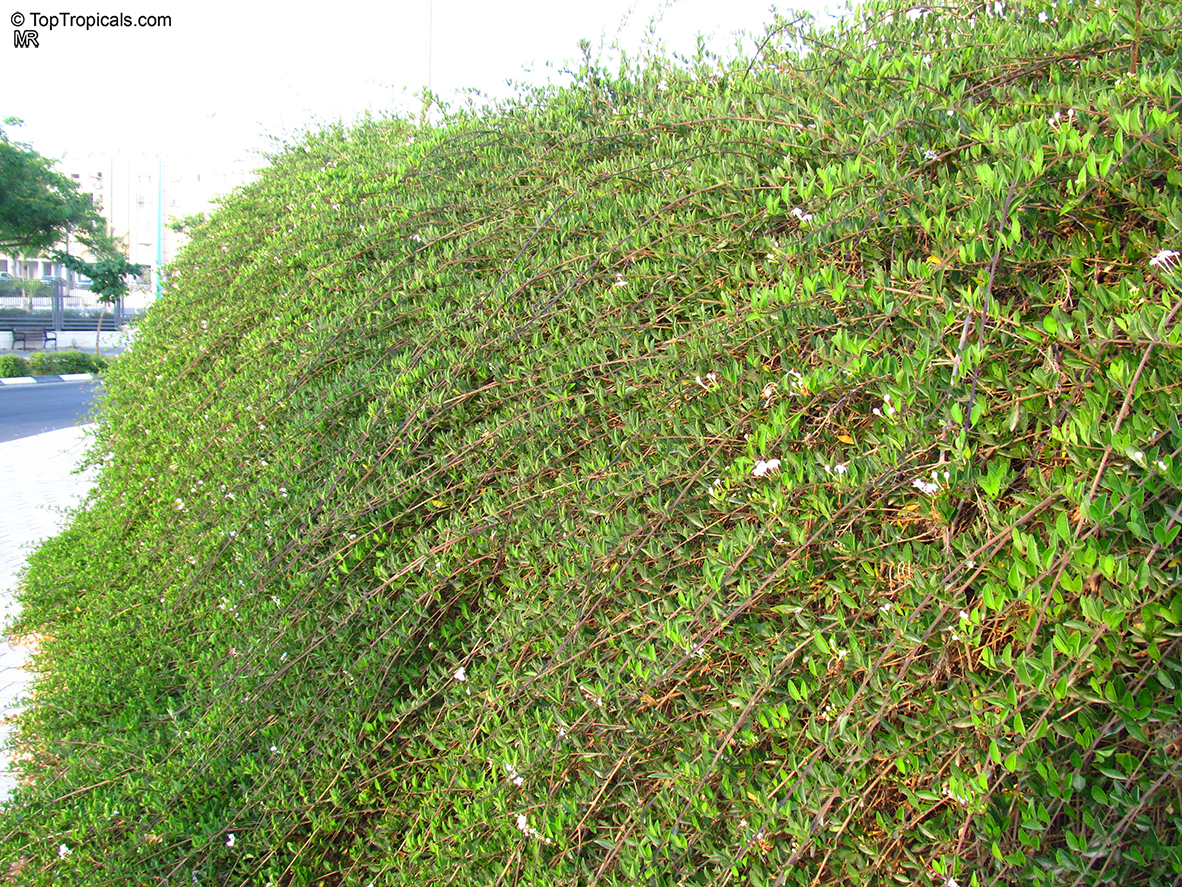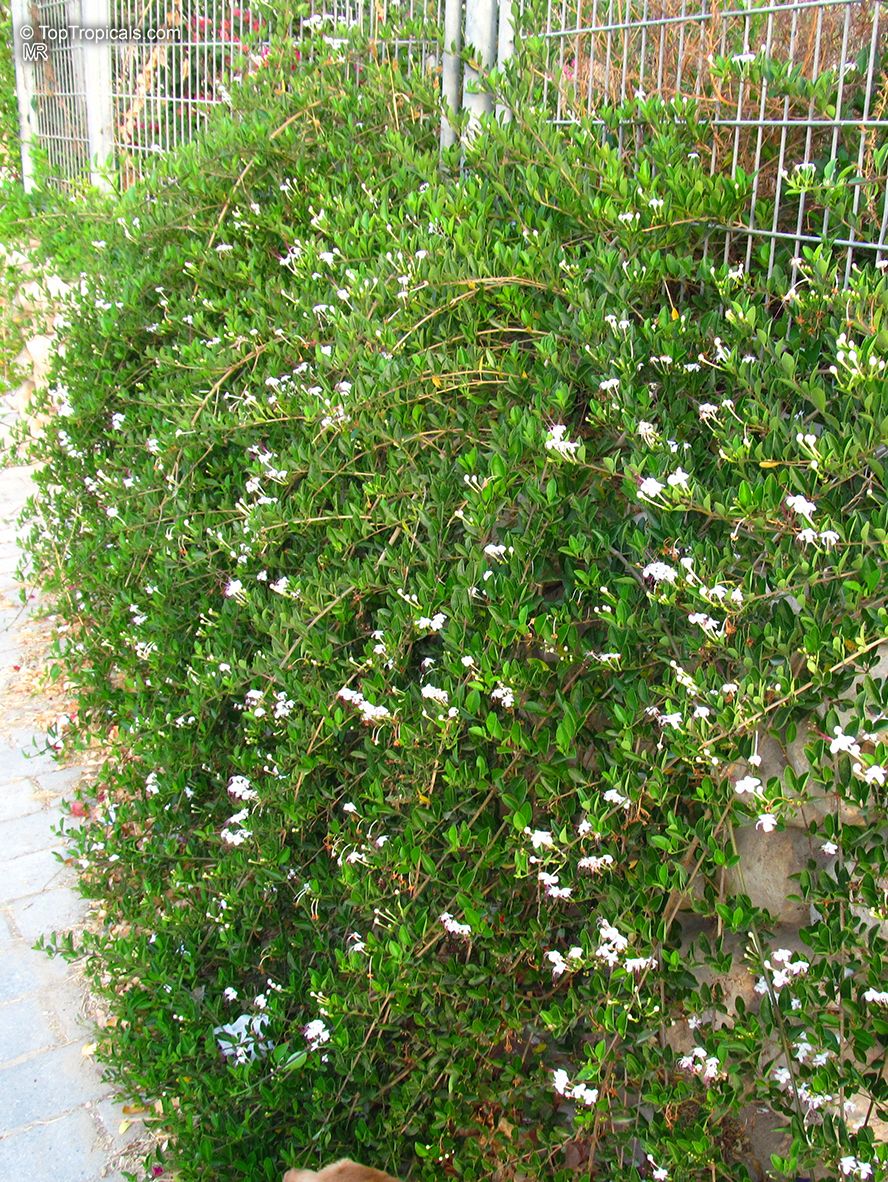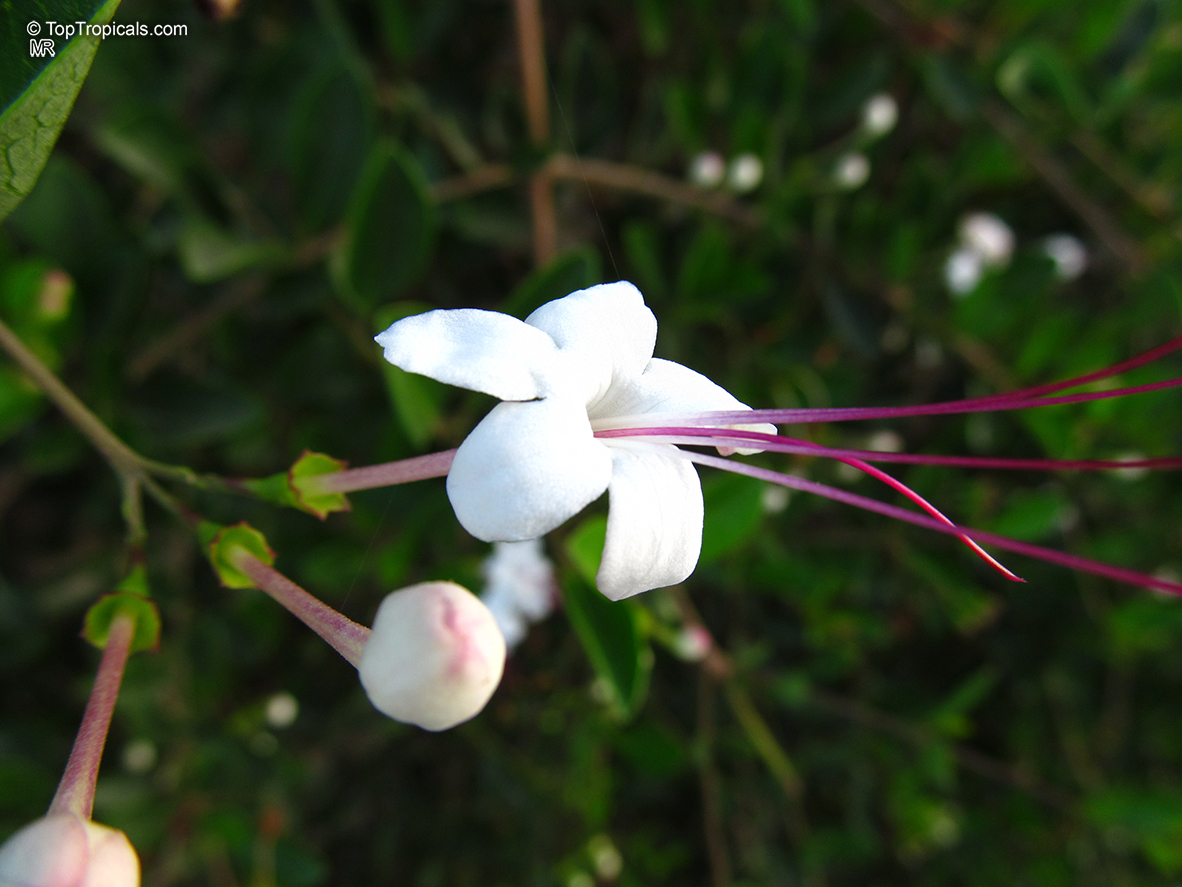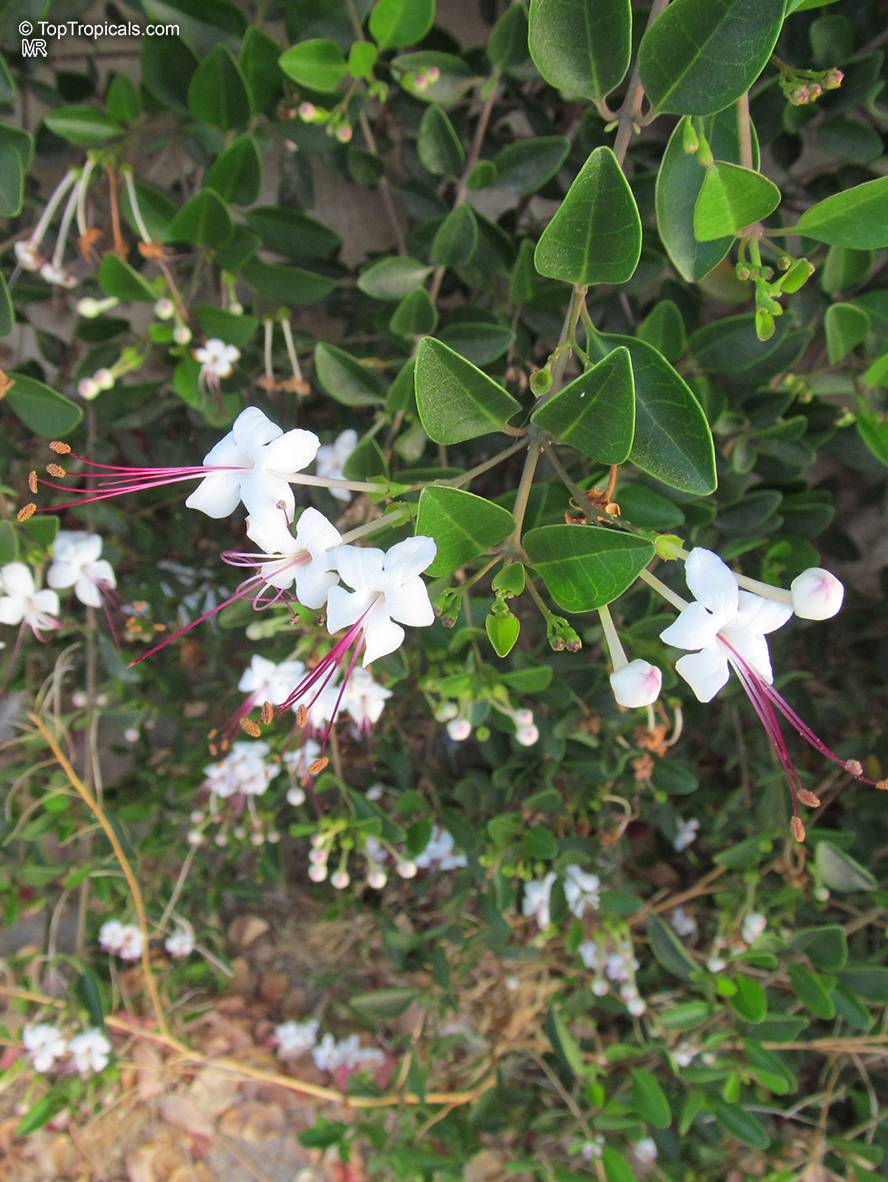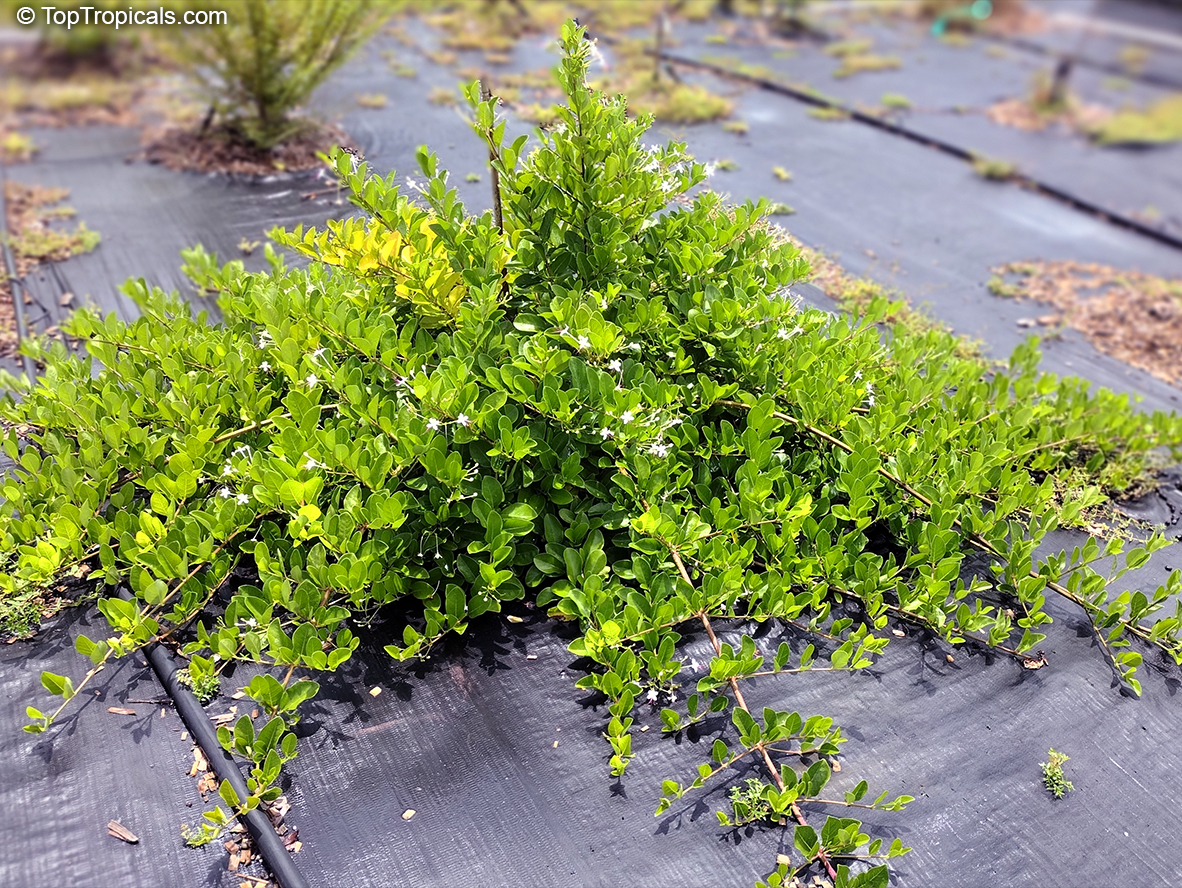Lamiaceae - Botanical Family
| Number of plants found: 143 | Next | 
|
Go to page: | 1 | 2 | 3 | 4 | 5 | Last |
Botanical name: Callicarpa americana
Common name: American Beautyberry
Family: Lamiaceae (Formerly:Verbenaceae)
Origin: North America







The beautyberries are packed tightly together in clusters that encircle the stem. Variety lactea has white fruits. Spring flowers and beautiful fall fruit make this an attractive landscape plant.
Very adaptable, even to low fertility soils. Very drought tolerant. Requires well drained soil. Propagation: Seeds and semi-hardwood cuttings.
Botanical name: Callicarpa bodinieri
Common name: Bodinier's Beautyberry
Family: Lamiaceae (Formerly:Verbenaceae)
Origin: West and Central China








The berries are edible and can be used in jams and jellies.
Callicarpa bodinieri is a large shrub, growing between 5-10 feet tall and wide. It is considered an easy to grow plant, requiring full sun and regular water, as well as occasional pruning of dead branches to maintain a neat shape. This deciduous plant is suitable for USDA Zone 6-10.
Callicarpa bodinieri produces beautiful pink flowers in mid to late summer, attracting butterflies and hummingbirds. In fall, the shrub is covered in clusters of small, purple berries, making it an attractive addition to the garden.
When growing Callicarpa bodinieri in pots, it is important to provide a well-draining potting mix, and to ensure that the plant is not overwatered.
Botanical name: Callicarpa japonica
Common names: Japanese Beautyberry, Murasaki Shikibu
Family: Lamiaceae (Formerly:Verbenaceae)
Origin: Japan









Botanical name: Callicarpa sp.
Common name: Beautyberry
Family: Lamiaceae (Formerly:Verbenaceae)









Callicarpa sp. (Beautyberry) is a large shrub, usually growing 5-10 feet tall and wide. It is native to temperate and tropical regions, and its adaptability to various environments makes it a popular landscape plant. This deciduous plant produces clusters of small, star-shaped pink flowers in early summer, followed by eye-catching clusters of bright purple berries in the late fall and winter.
For best results, Beautyberry needs full sun or partial shade, and regular to moderate water. Given the right conditions, Beautyberry can offer a richly colored, lush presence to any garden. In cold regions, where this plant is not winter hardy, beautyberry can be grown in a pot and brought indoors during the coldest months.
In terms of temperature, Beautyberry is a surprisingly hardy plant for its size and delicate appearance. The USDA Plant Hardiness Zone for Beautyberry is 5-8. Despite its winter hardiness, Beautyberry may require protection from heavy winter rains and winds.
Botanical name: Caryopteris xclandonensis
Common names: Bluebeard, Blue Spirea, Blue Mist shrub
Family: Lamiaceae








Caryopteris xclandonensis likes full sun to part shade and very well-drained soil that is not overly rich.
It's an attractive woody shrub with dark green leaves, dark purplish blue flowers, and a compact habit. Misty blue flowers appear in late summer and early autumn.
Botanical name: Clerodendrum bungei
Common names: Cashmere (Cashmir) bouquet, Glory Bower, Clerodendron
Family: Lamiaceae (Formerly:Verbenaceae)
Origin: China
Hardiness: 15°F











Dark green leaves often tinged purple are up to 8 inches long. The fragrant purple-red flowers are in terminal panicles up to six inches across. The plant is tolerant to sun and semi-shade. It is an ideal candidate for the container grown Patio Plant. Clerodendrum bungei Pink Diamond is very fragrant and will attract butterflies to the large flower trusses.
Enjoy clusters of sweetly scented, pink flowers that attract butterflies and other pollinators. They open in terminal panicles up to six inches across. Dark green leaves often tinged purple are up to 8 inches long. This plant can be grown as a compact shrub or allowed to spread. This plant is incredibly vigorous and fast-growing, spreading quickly through root suckers. If you don t want it to take over your yard in just one season, make sure to plant it in a contained corner or a container. Hardy and Resilient: Cashmere Bouquet is hardy to USDA Zones 8-10 and can tolerate light freezes, rejuvenating each spring.
It thrives in full sun to part shade and is drought-tolerant once established. Keep the soil moist during the growing season. Regular pruning helps maintain its shape and encourages more blooms.
Botanical name: Clerodendrum calamitosum
Common name: White Butterfly Bush
Family: Lamiaceae (Formerly:Verbenaceae)
Origin: Java










This clerodendrum is a small to medium size shrub with beautiful butterfly-shaped flowers, similar to Clerodendrum ugandense (Blue Butterfly Bush) and Clerodendrum mastacanthum (Pink Butterfly Bush) . They are slightly fragrant during evening hours. Blooms from late winter to fall in warm areas.
Botanical names: Clerodendrum heterophyllum, Clerodendrum aculeatum
Common names: Tree of little stars, Escambron, Tamourette
Family: Lamiaceae (Formerly:Verbenaceae)











Clerodendrum heterophyllum (Tree of little stars) grows in full sun or semi-shade and prefers soil that is a bit acidic.
It is a large shrub, 5 - 10 ft tall, is tolerant to most soil types and can survive in USDA Zone 9-11. It produces white, off-white flowers that are slightly fragrant. It has a rather thorny or spiny character that adds to its beauty. Its nickname, Tree of little starsâ, is quite befitting since this plant looks like a thousand stars when in bloom.
Growth is easy with little care, as long as regular watering is maintained. In cold regions, it can be grown in pots and placed in sheltered areas. This shrub is attractive to both butterflies and hummingbirds. It also has ethnomedical applications for treating a few ailments.
To maintain the aesthetic beauty of this shrub, light pruning is recommended every now and then. When pruning, it is important not to prune too much off and always maintain a uniform shape. The plant should be fertilized throughout the growing season, around once a month.
Overall, Clerodendrum heterophyllum is a great choice for a low-maintenance garden shrub that is sure to attract the attention of both butterflies and hummingbirds.
Botanical names: Clerodendrum inerme, Volkameria inermis
Common names: Wild Jasmine, Sorcerers Bush, Seaside clerodendrum, Clerodendron
Family: Lamiaceae (Formerly:Verbenaceae)
Origin: India, Malaysia











Clerodendrum inerme is a hardy shrub that can thrive in a variety of environments. In milder winters, they can be planted in the garden with no protection. However, for areas with harsher winters, it is recommended to plant the shrub in a pot and bring it indoors when temperatures drop below freezing.
When caring for clerodendrums, it is important to water the plant regularly, but only when the soil is dry. In spring and summer, fertilize the plant with a general purpose fertilizer and apply mulch to conserve moisture. This shrub is native to Tropical Asia. It is also an evergreen mangrove plant that can thrive near the ocean at the high tide mark, making it a potential weed in the coastal environment.
Clerodendrum inerme is a sun-loving plant that reaches a height of 10-15 ft with closely arranged, almost round, shiny, deep green leaves. The plant is always in flower, with white and fragrant flowers that have spreading five corolla lobes and long purple stamens. The stems of this plant are smooth and do not have thorns, hence the specific name inerme, which means thornless.
This plant is versatile and can be grown as a topiary or bonsai. It is also salt-, heat-, and wind-tolerant, making it well-suited for growth along the beach where it can tolerate the salt spray of the ocean and the harsh rays of the sun. It can be grown as a hedge, but a large number of well-developed plants are needed. Trimming the plant keeps the hedge in shape, but also robs the plant of its flowers as they are produced at the ends of branches.
| Next |  |
Use link to repeat this search:
https://toptropicals.com/cgi-bin/garden_catalog/cat.cgi?search_op=and&keyword_op=and&language=e&family=Lamiaceae&number=10
&no_change_lang=1&user=tt&sale=1&first=0
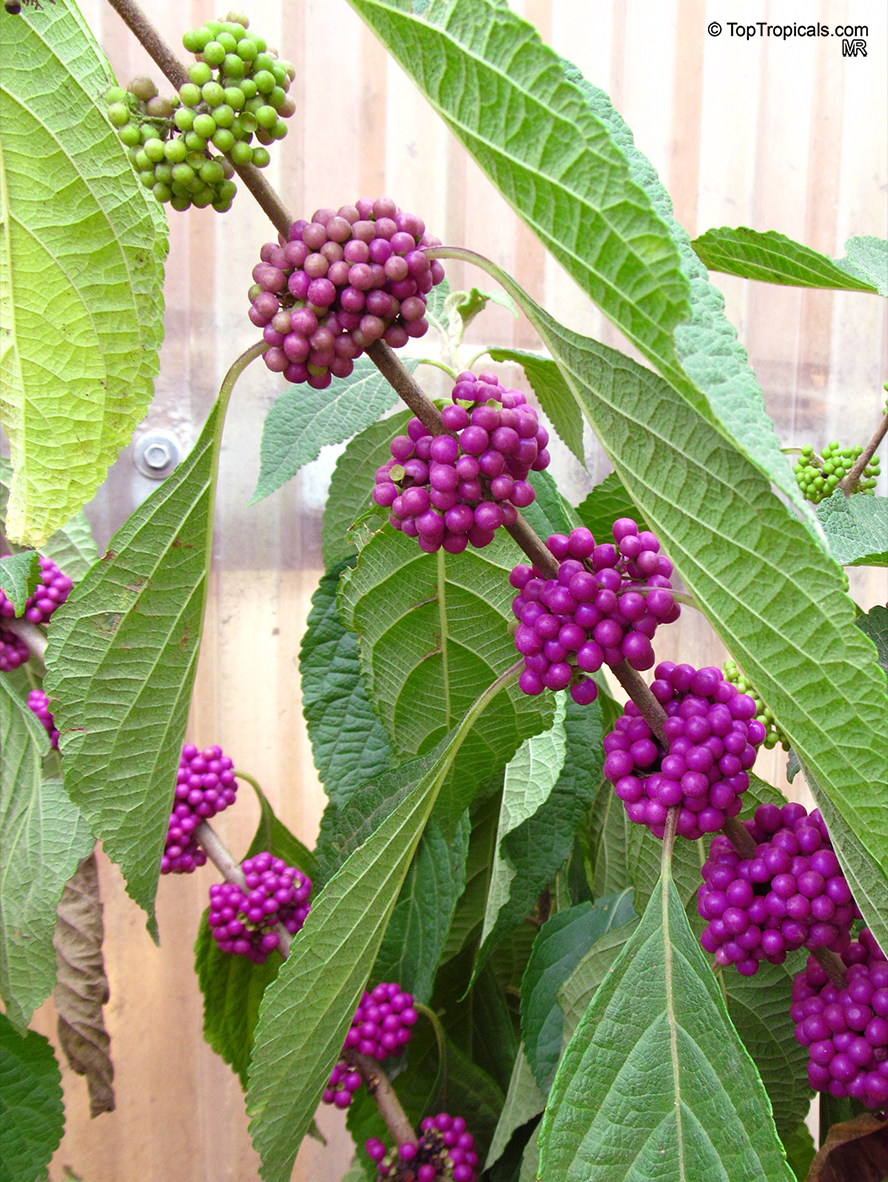
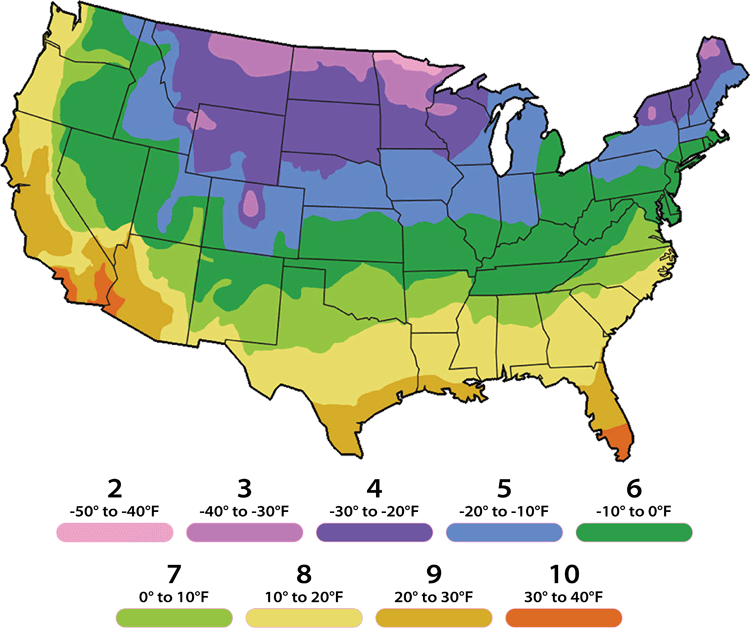
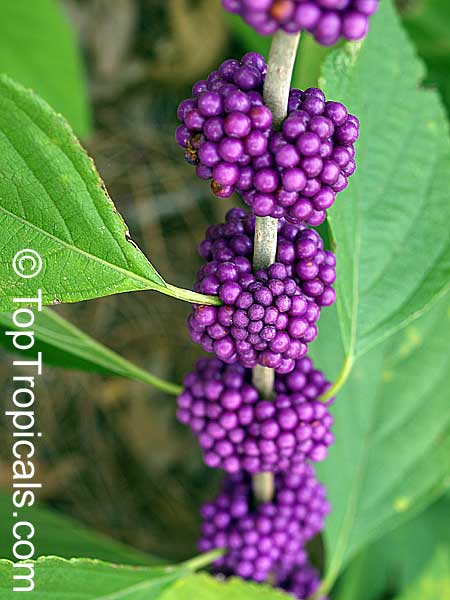
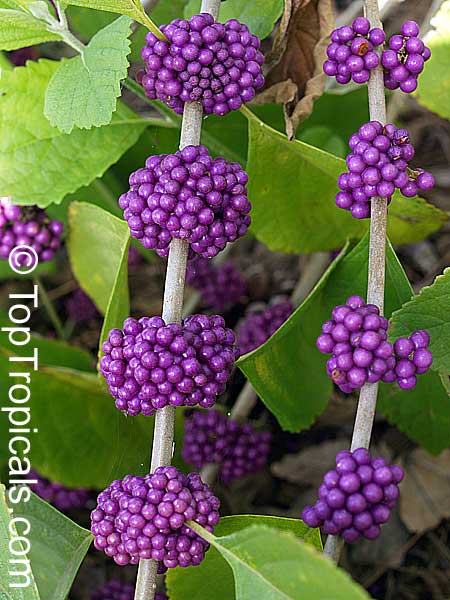
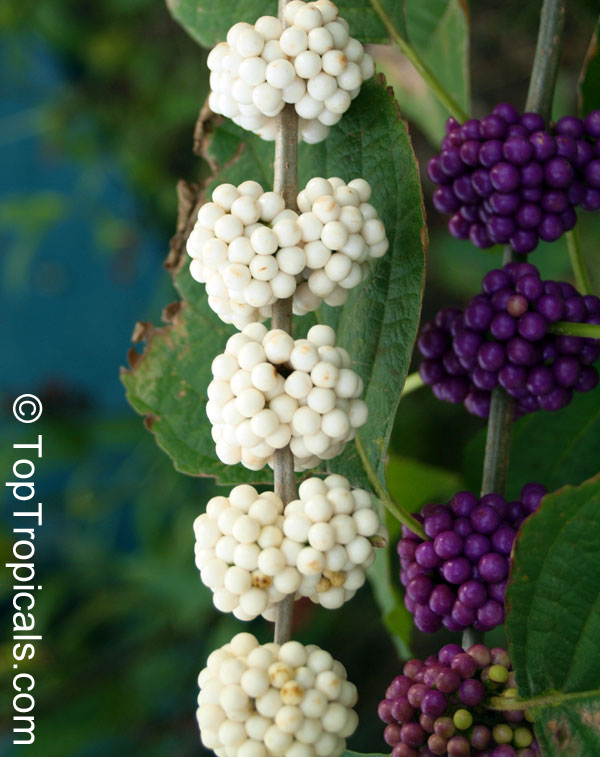
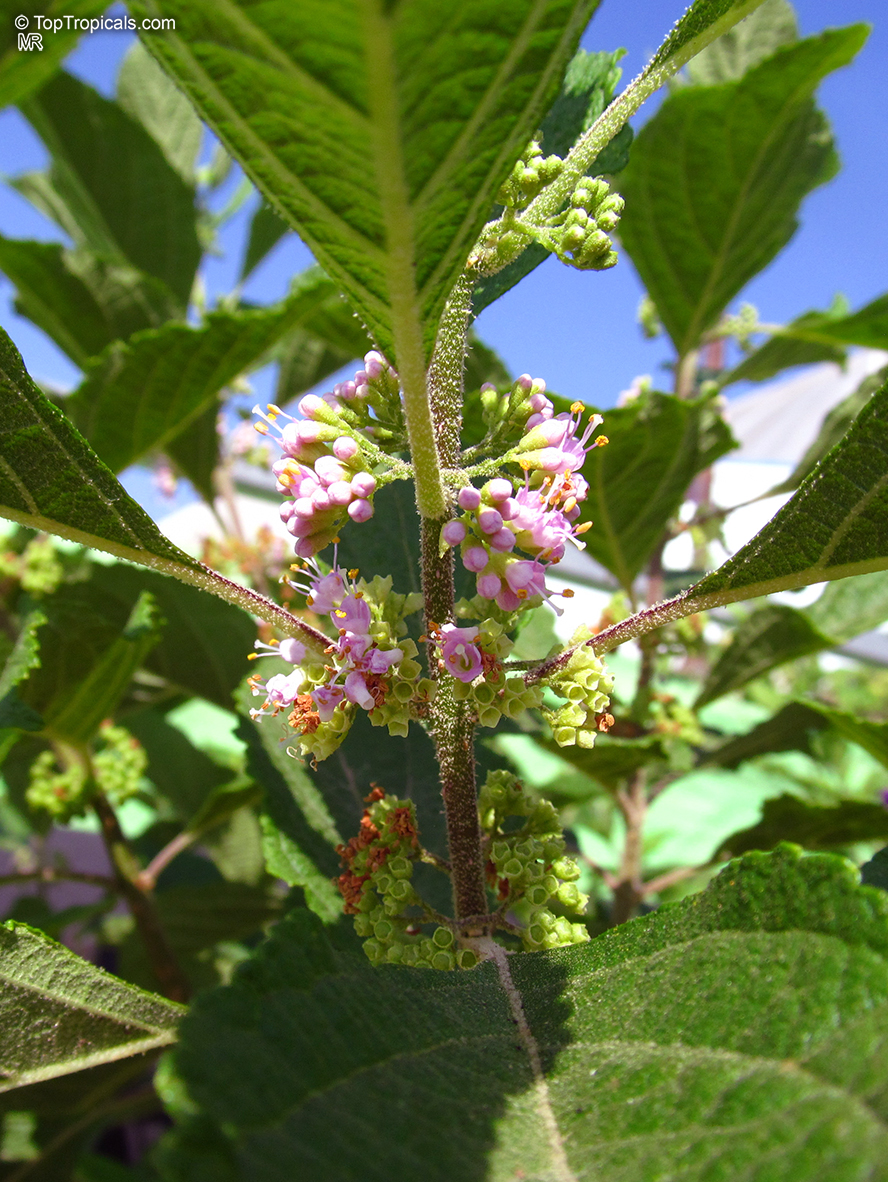
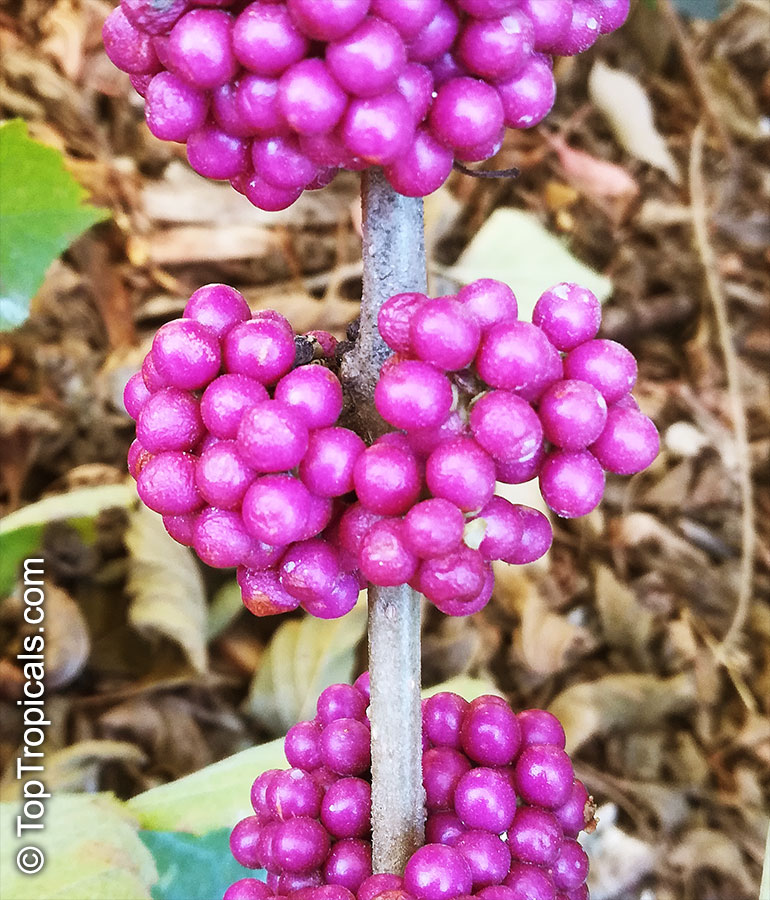

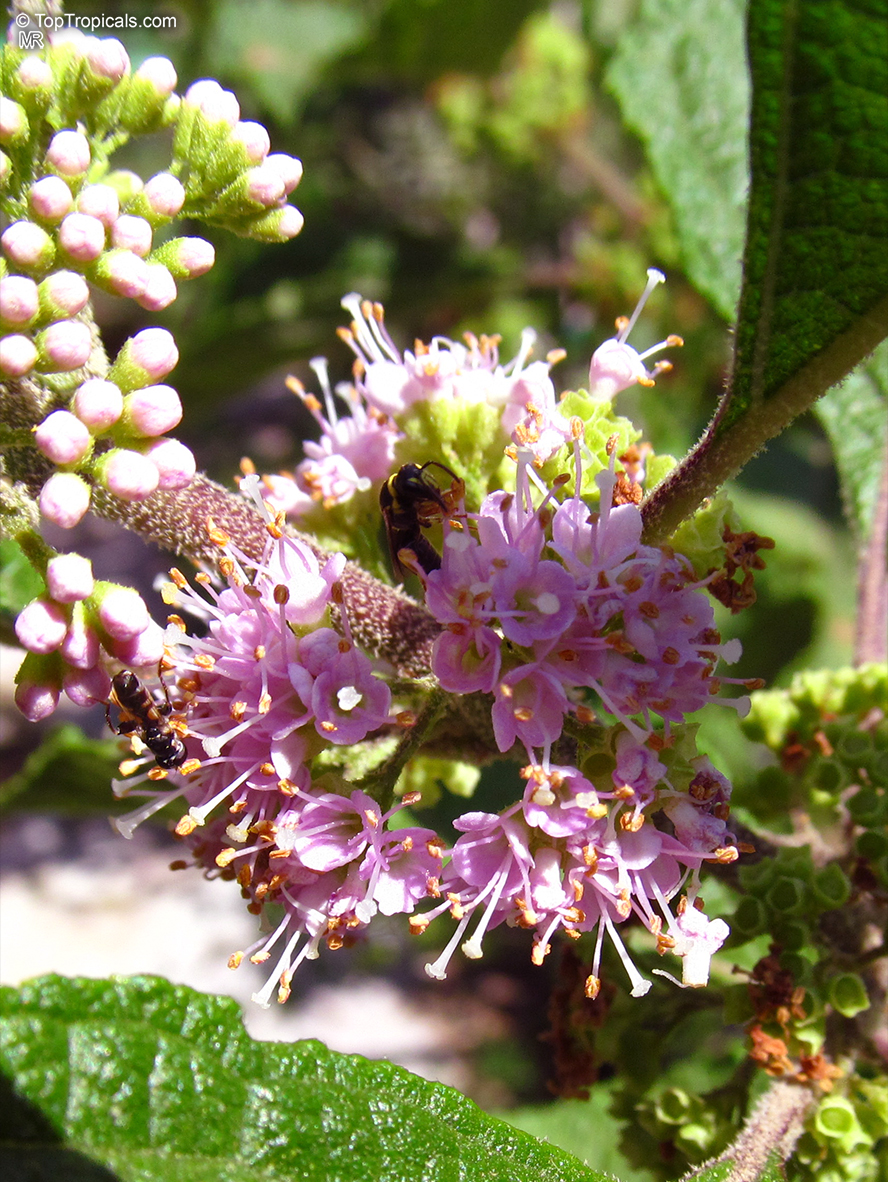
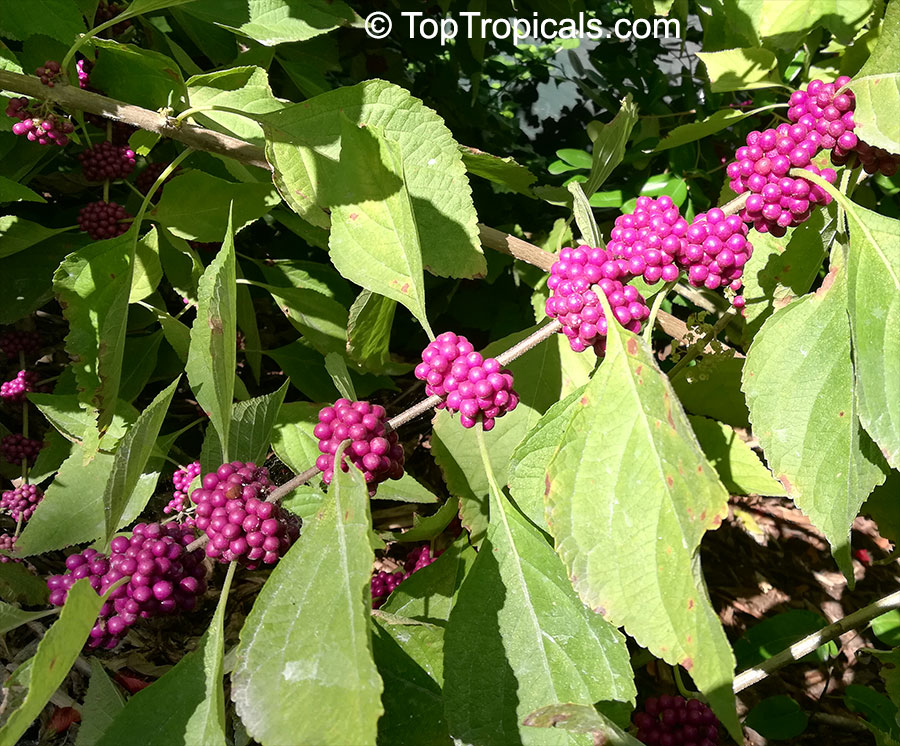
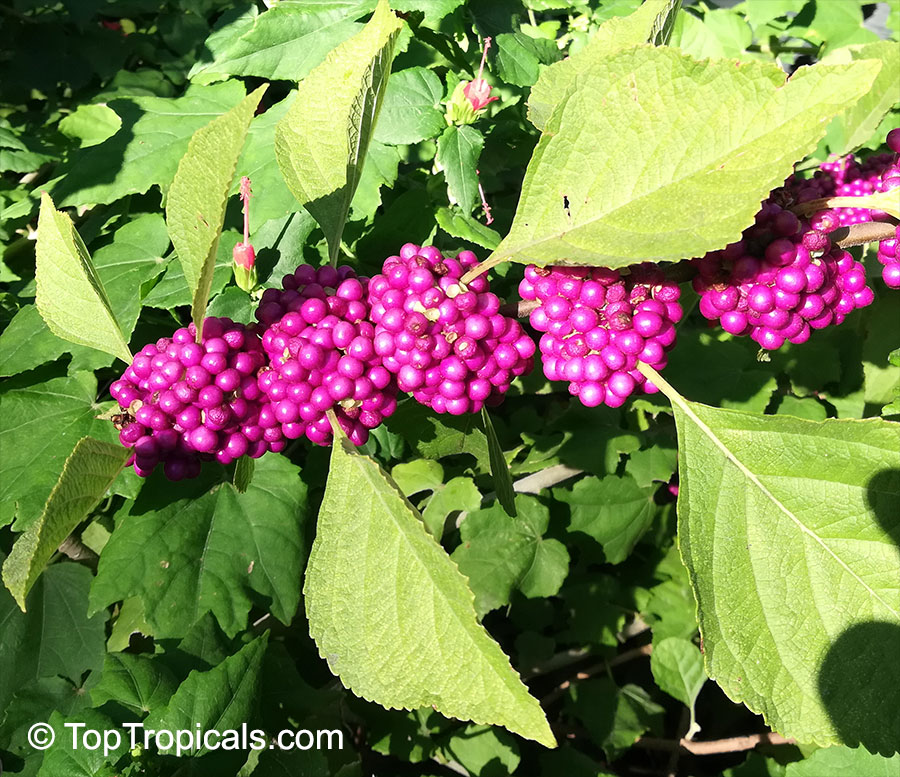
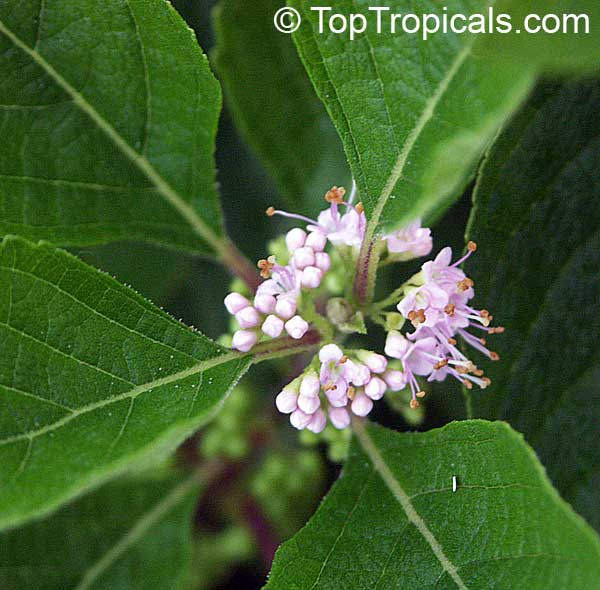
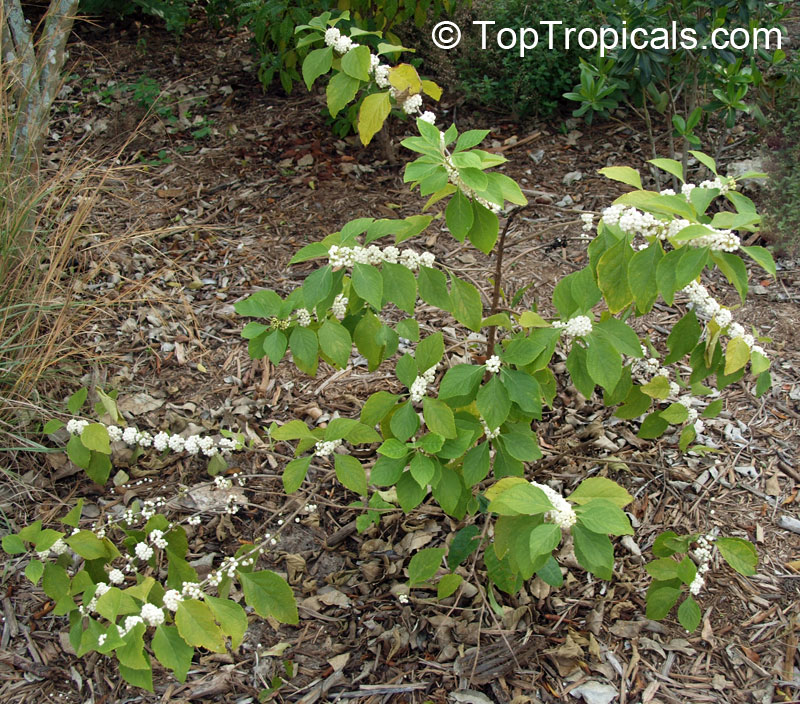
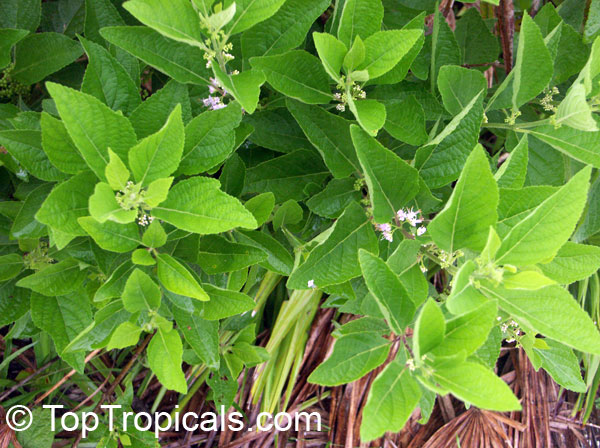
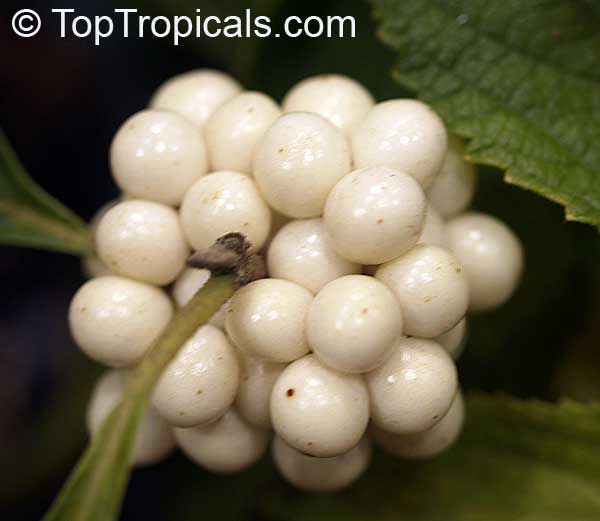
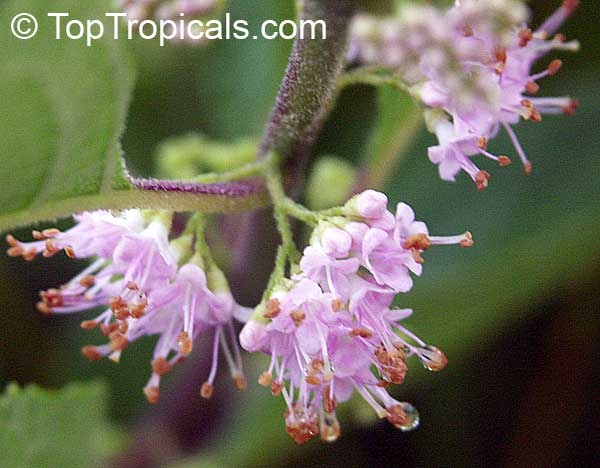
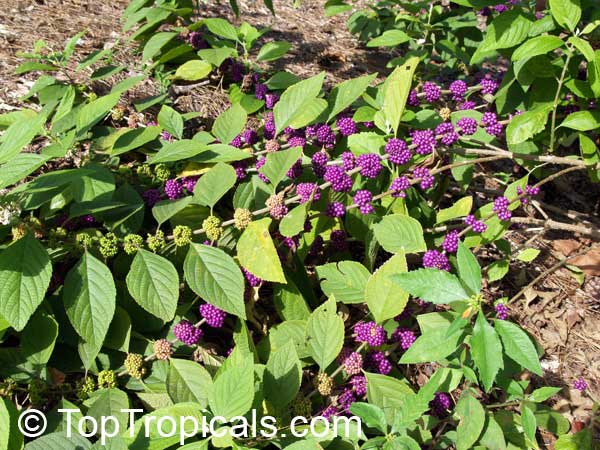
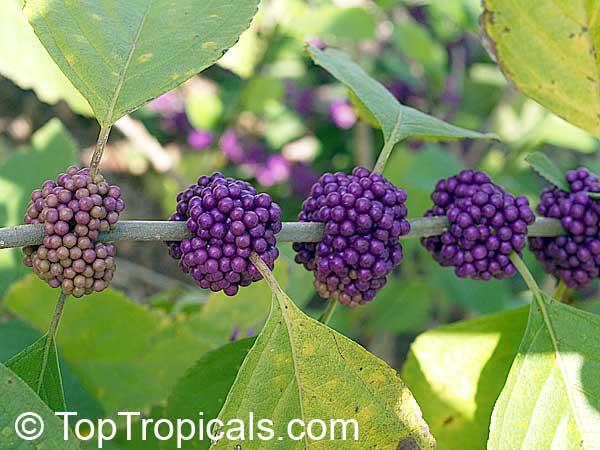
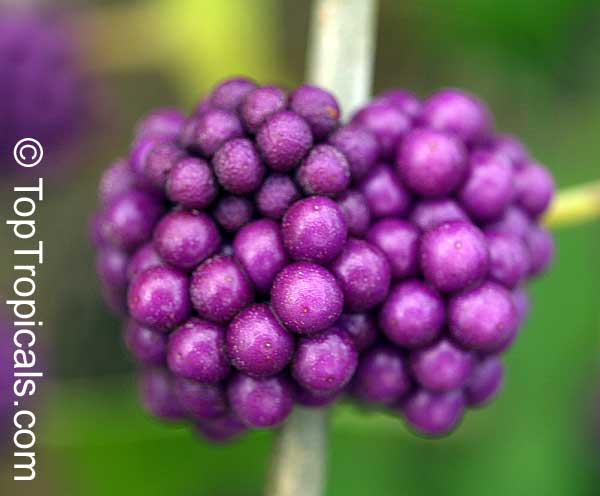
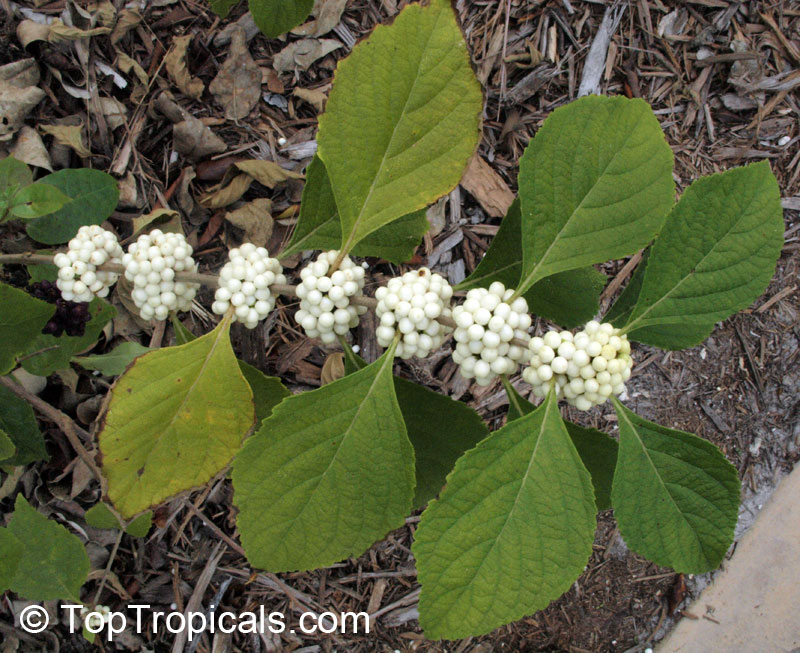
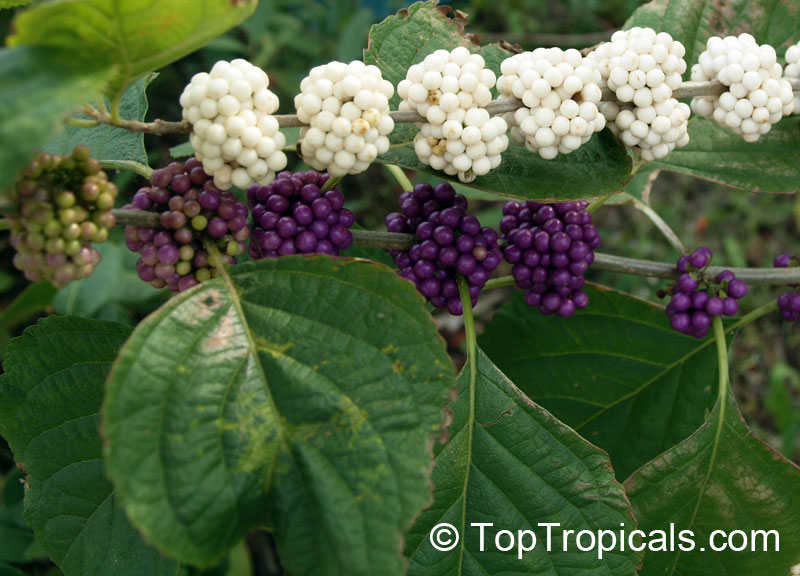
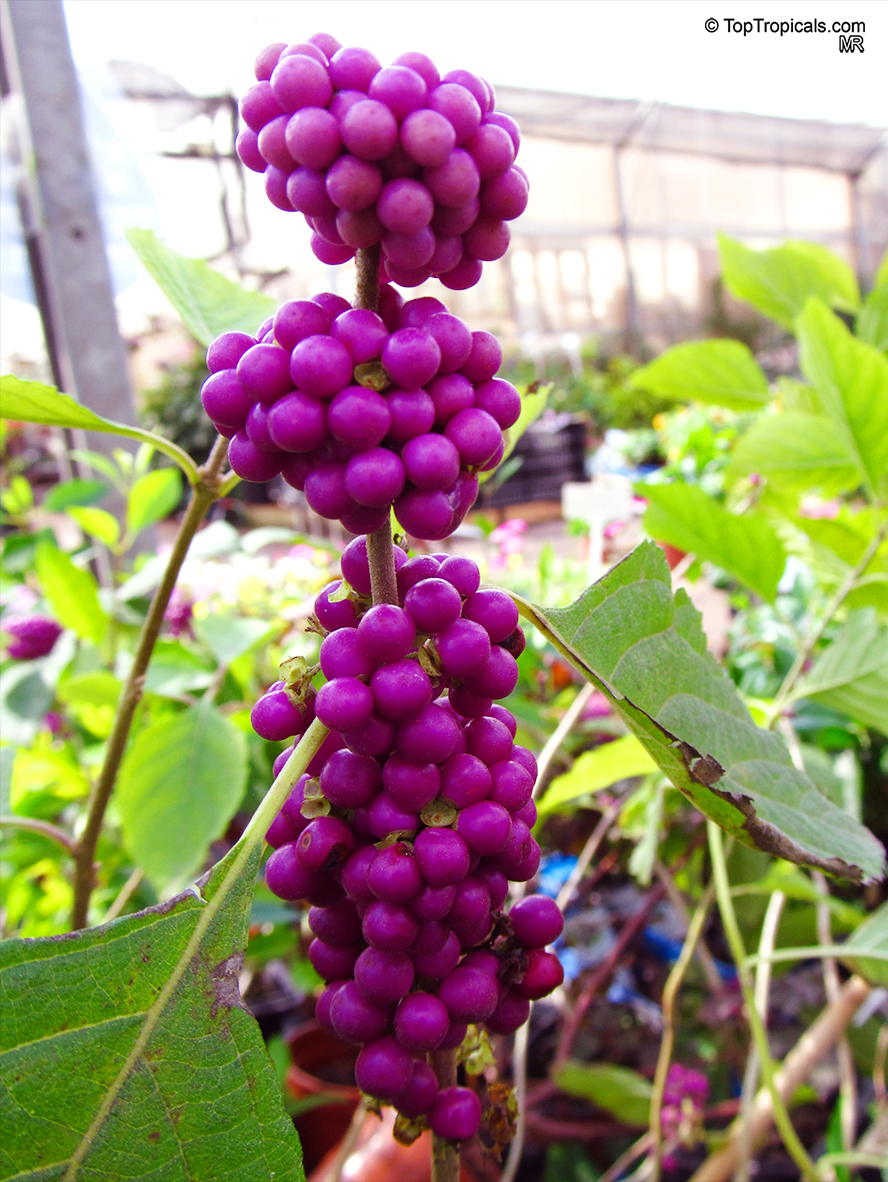
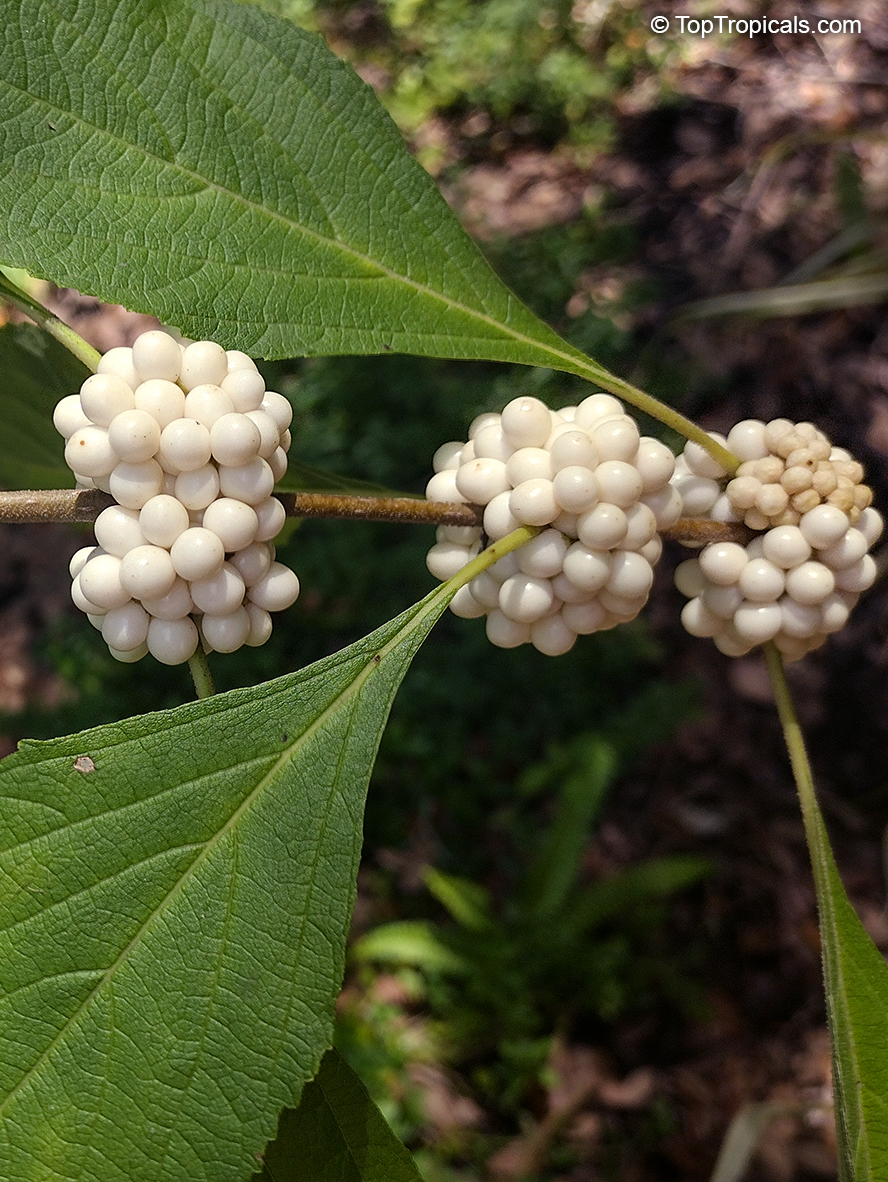
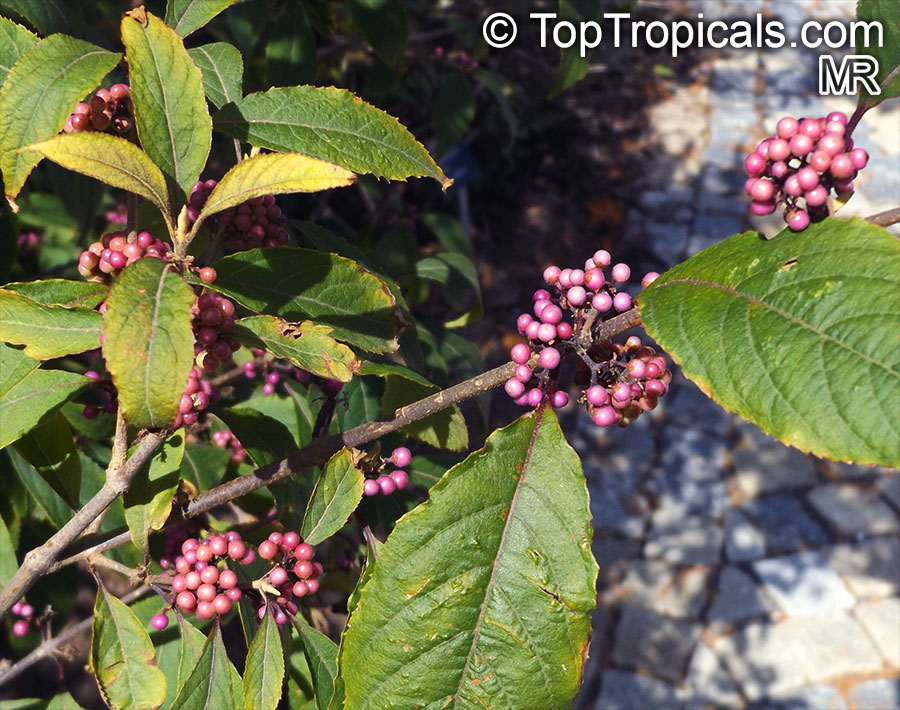
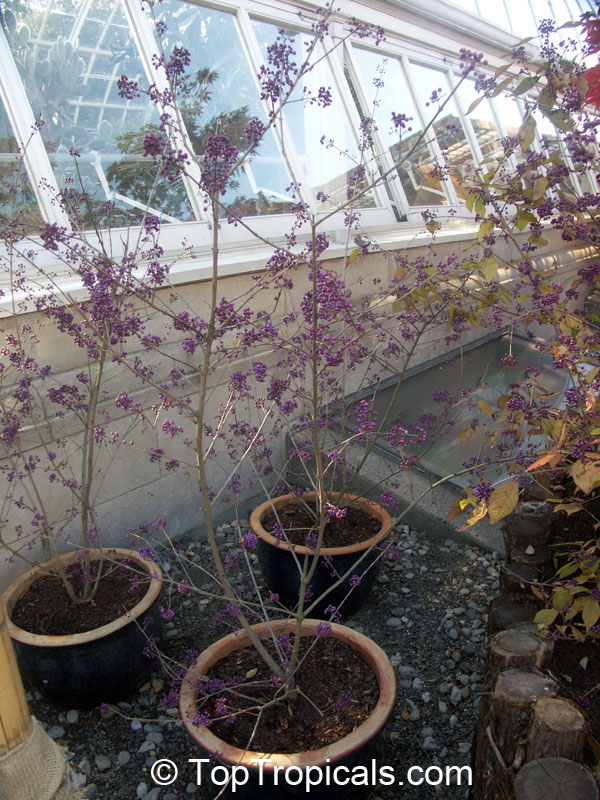
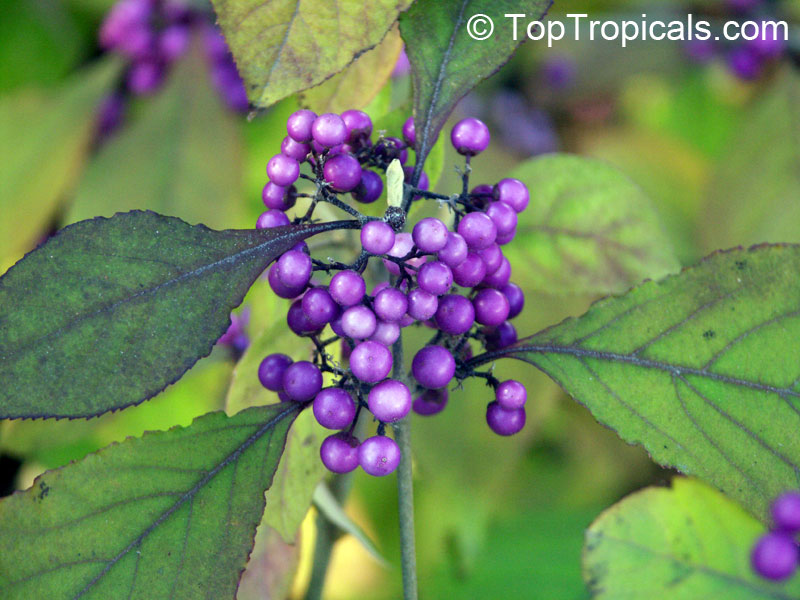
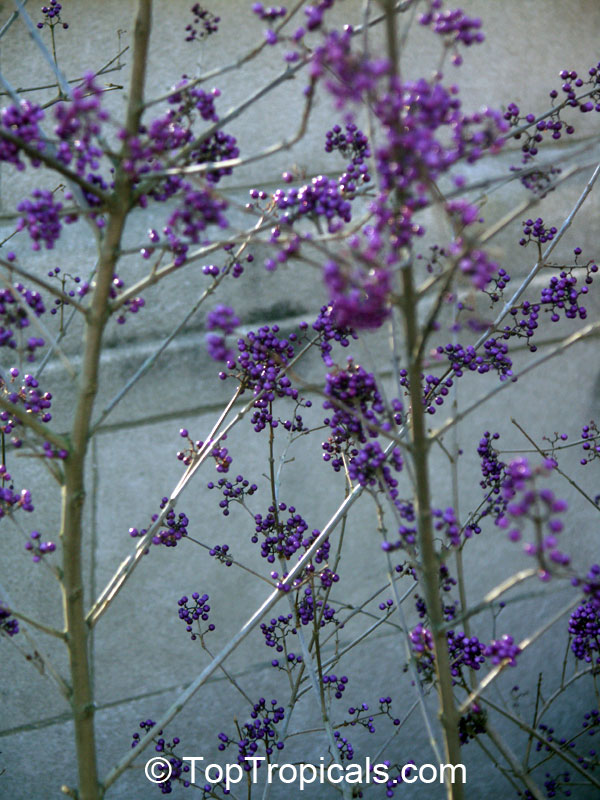
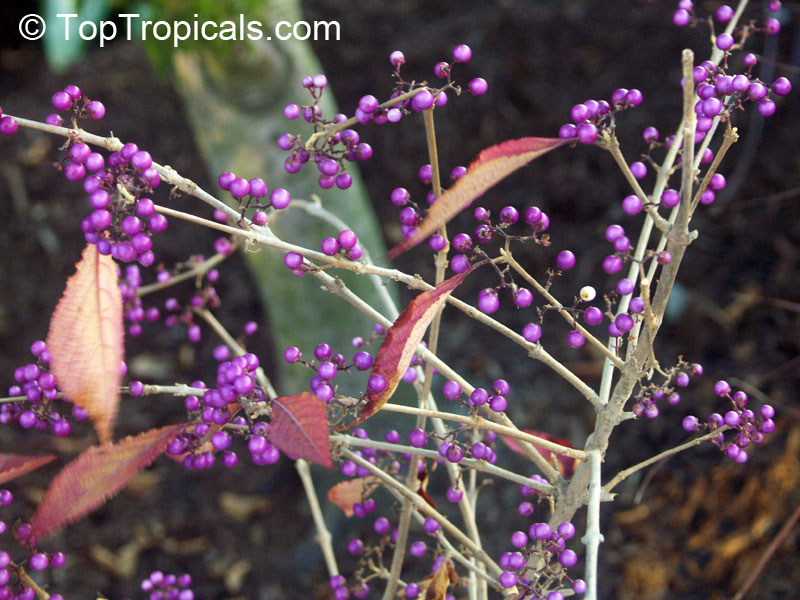
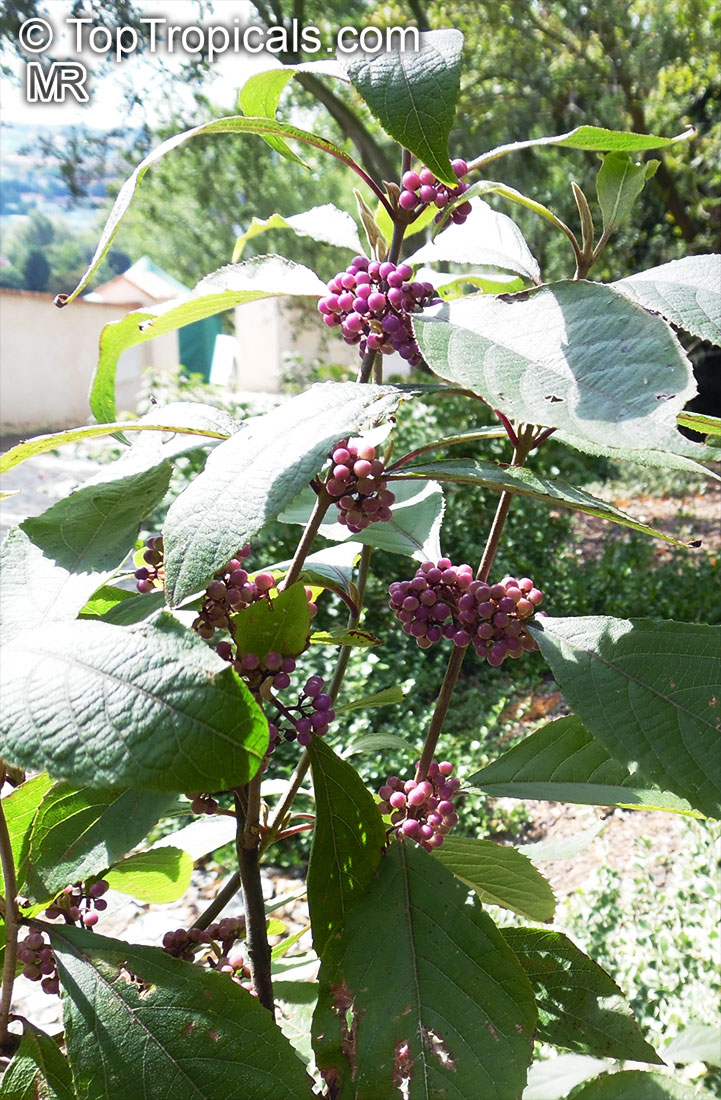
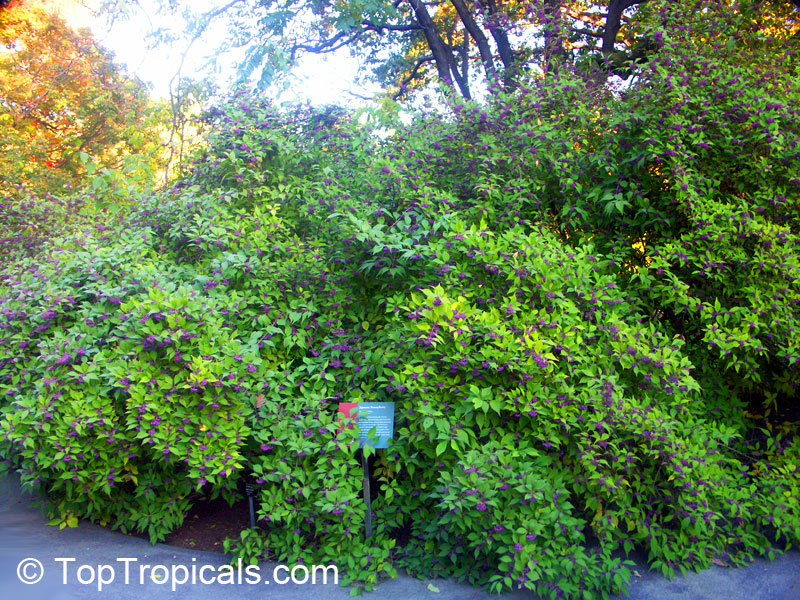
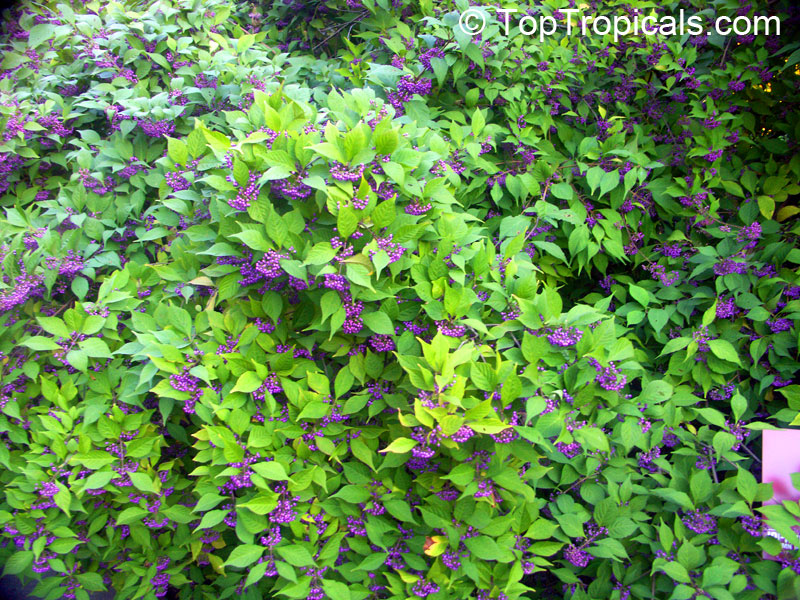
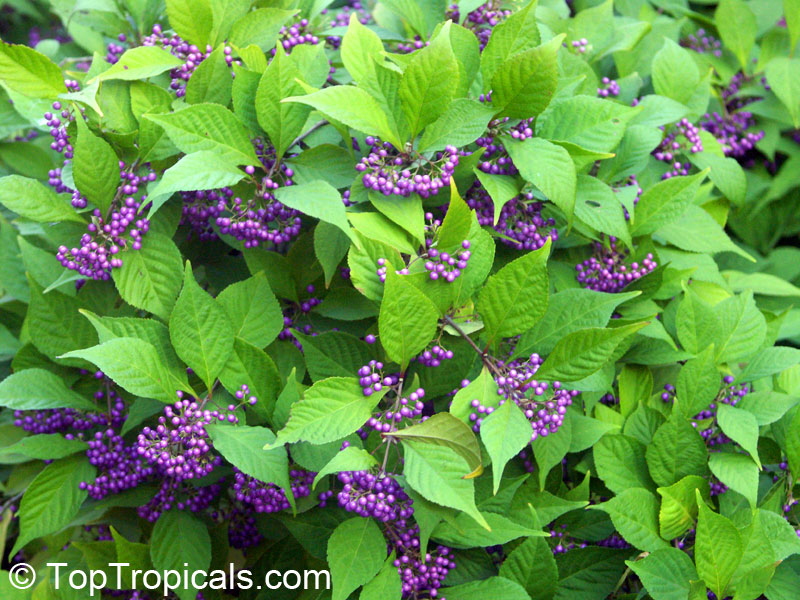
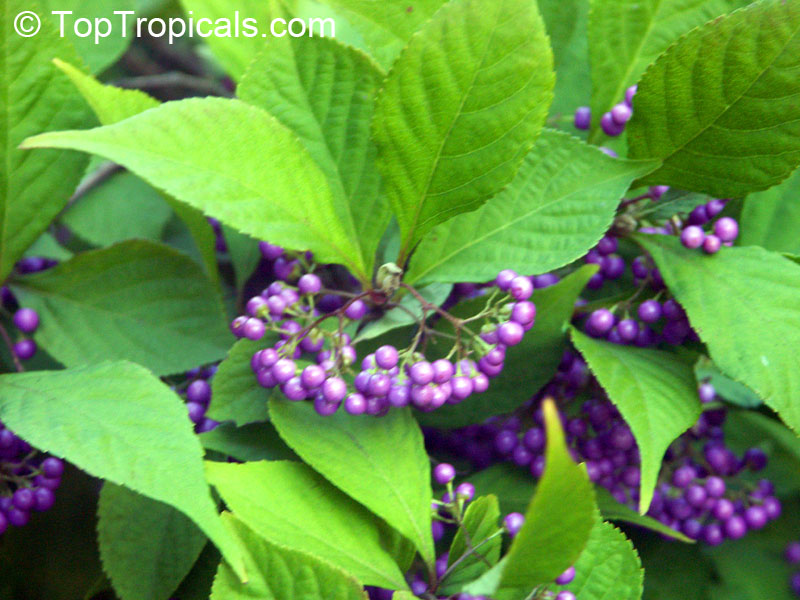
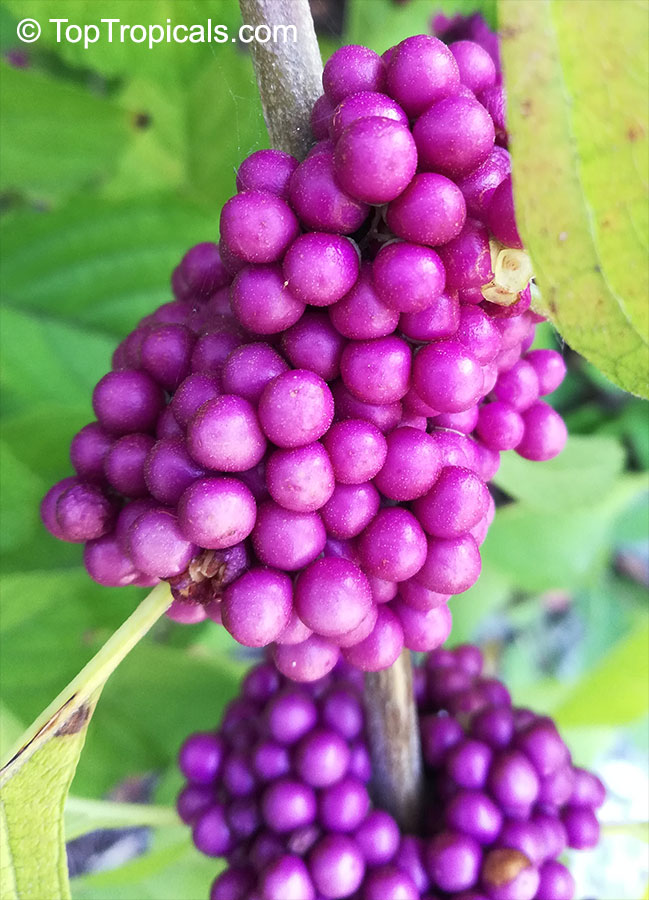
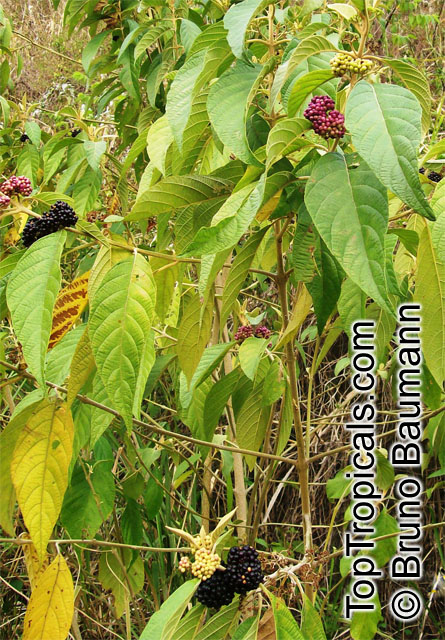
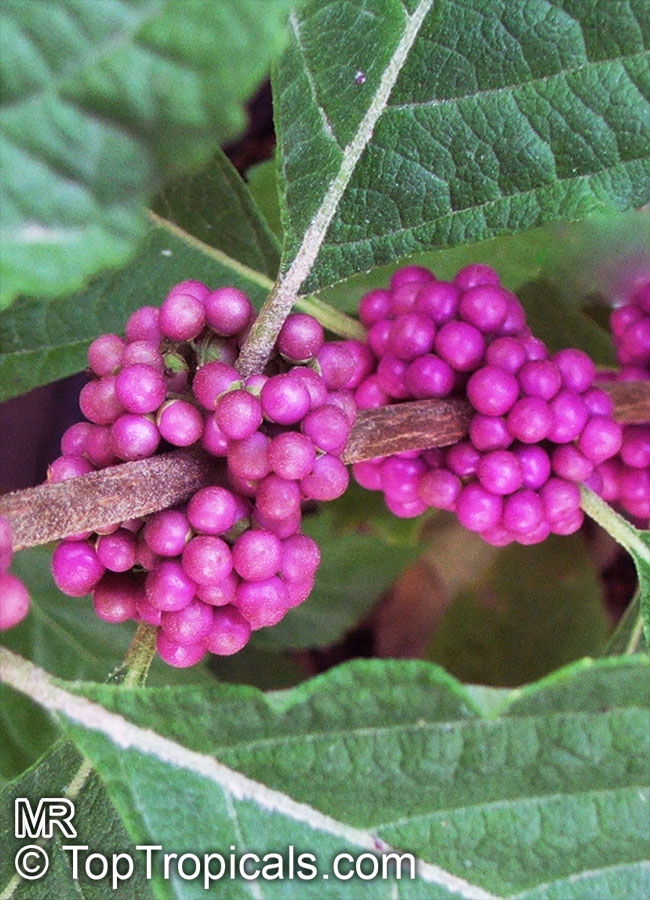
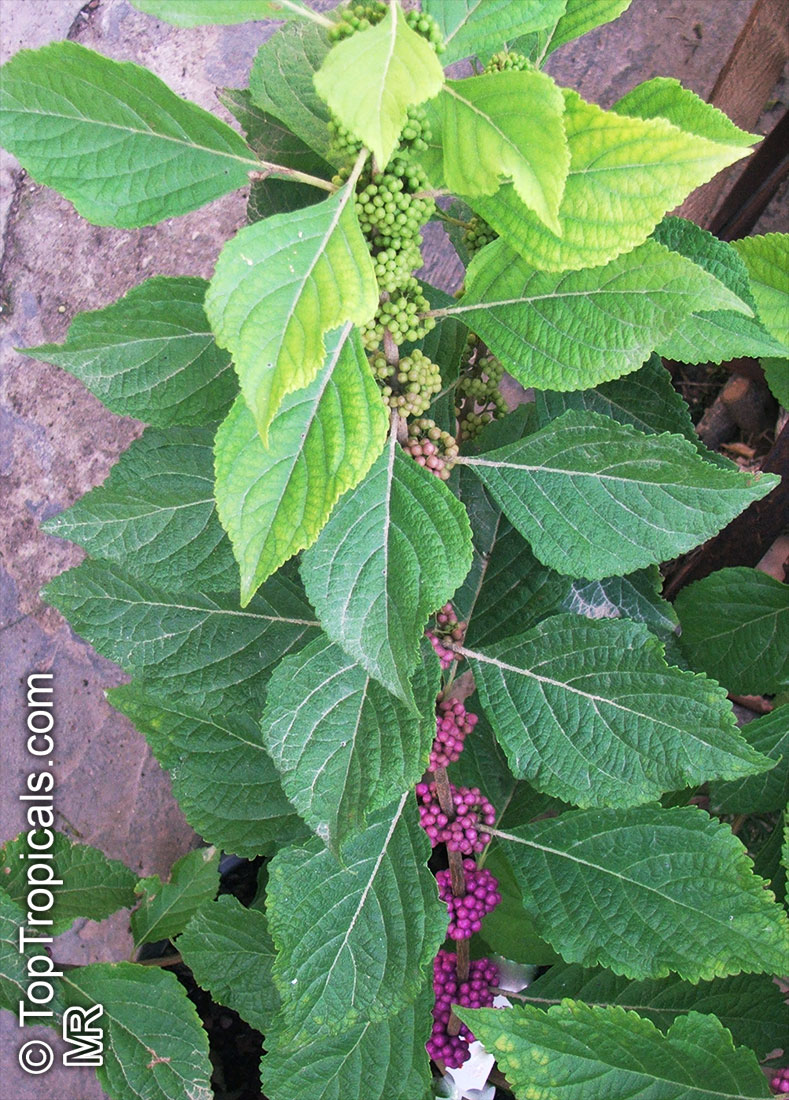
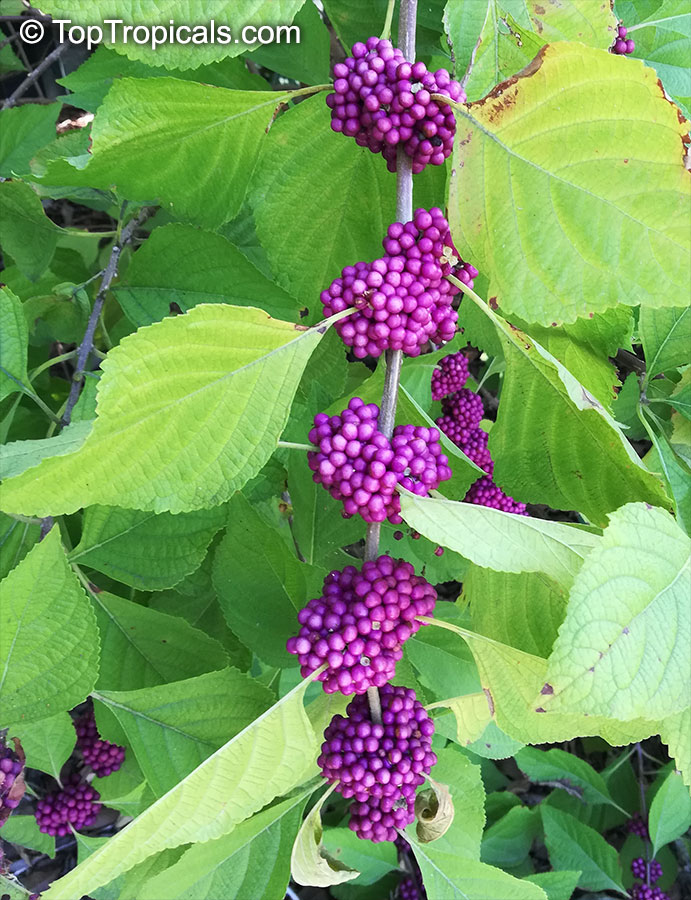
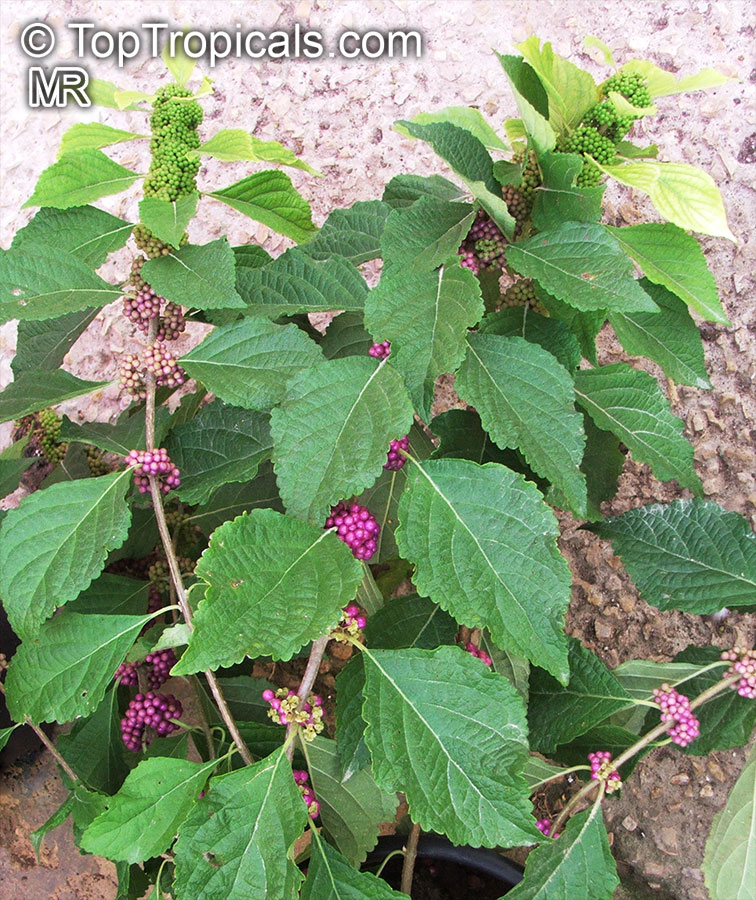
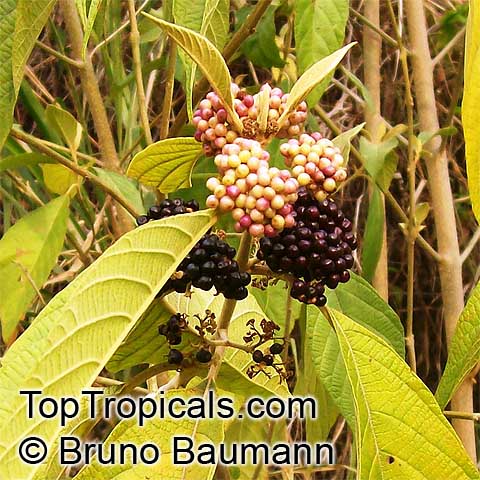
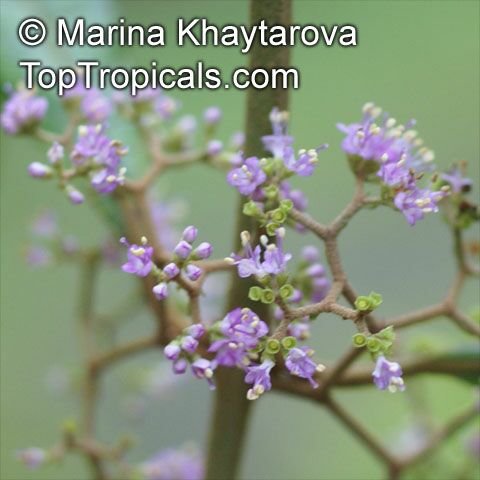
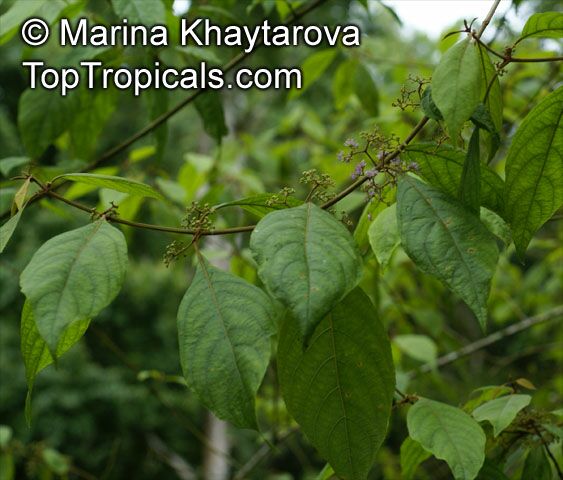
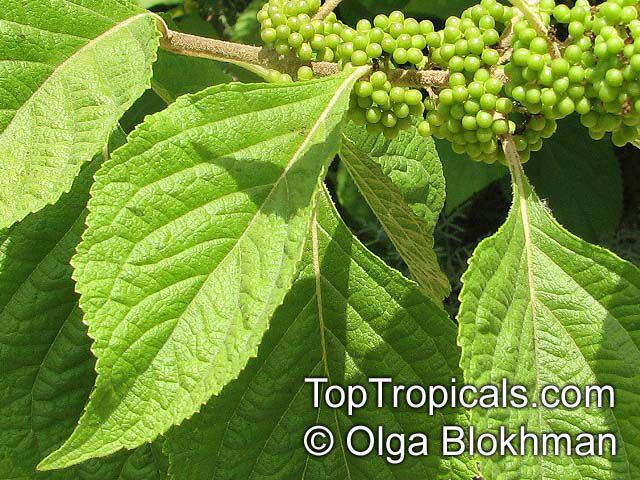
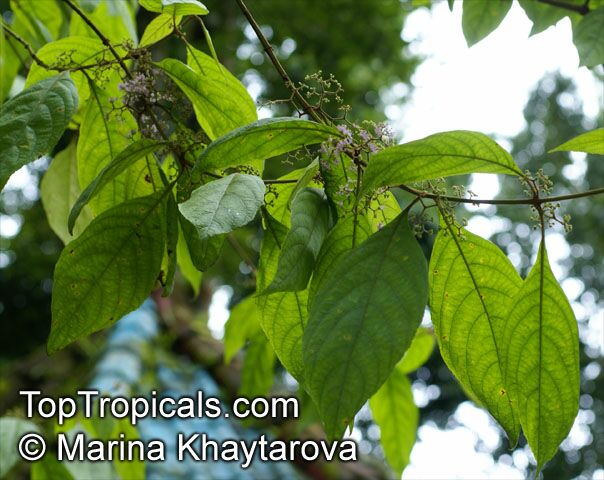
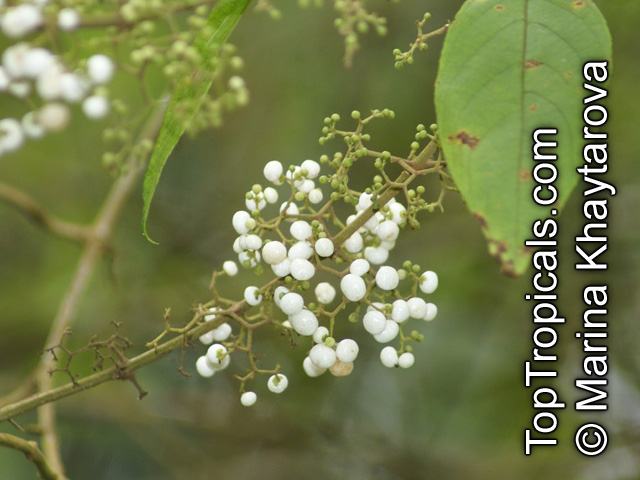
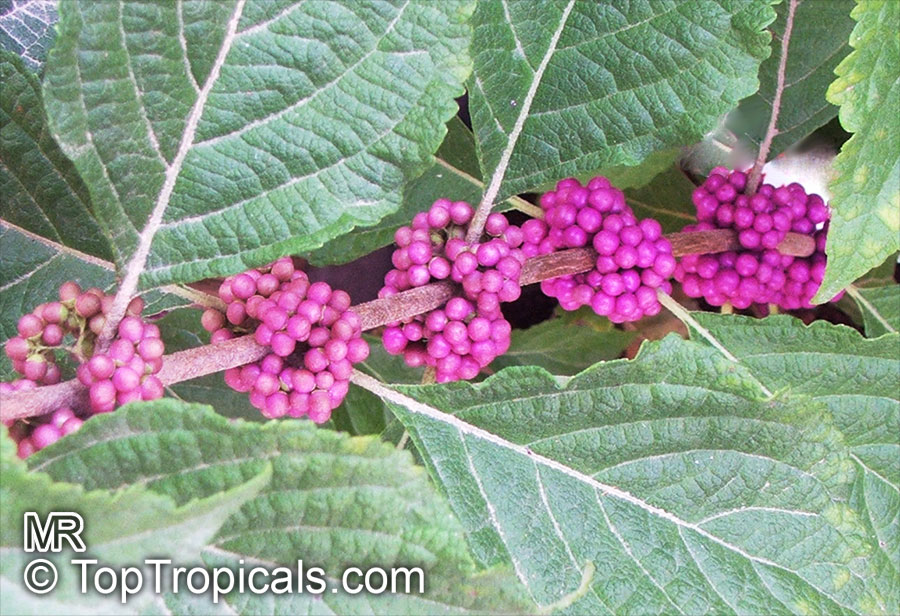
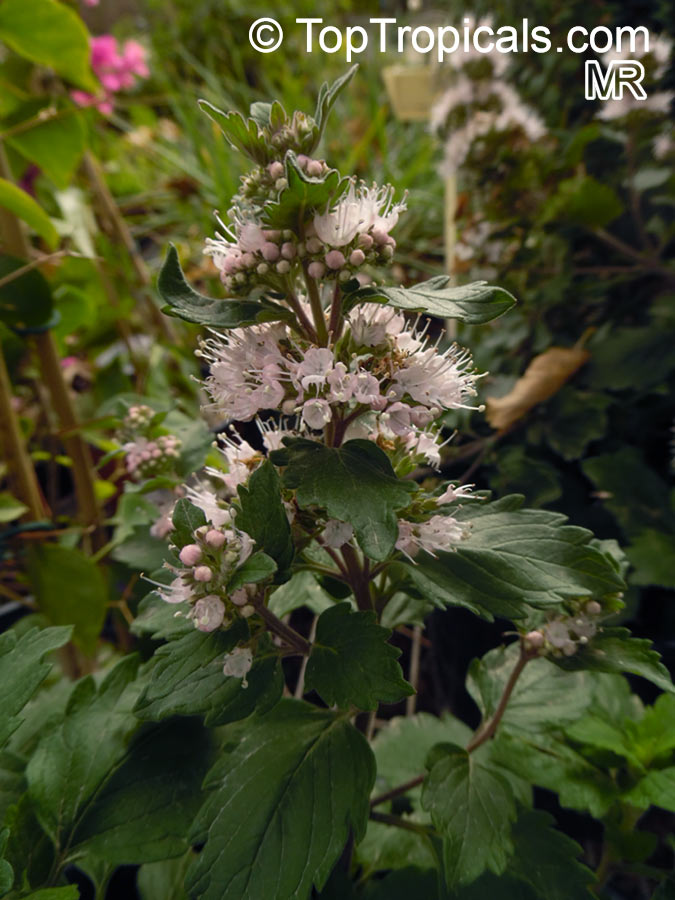
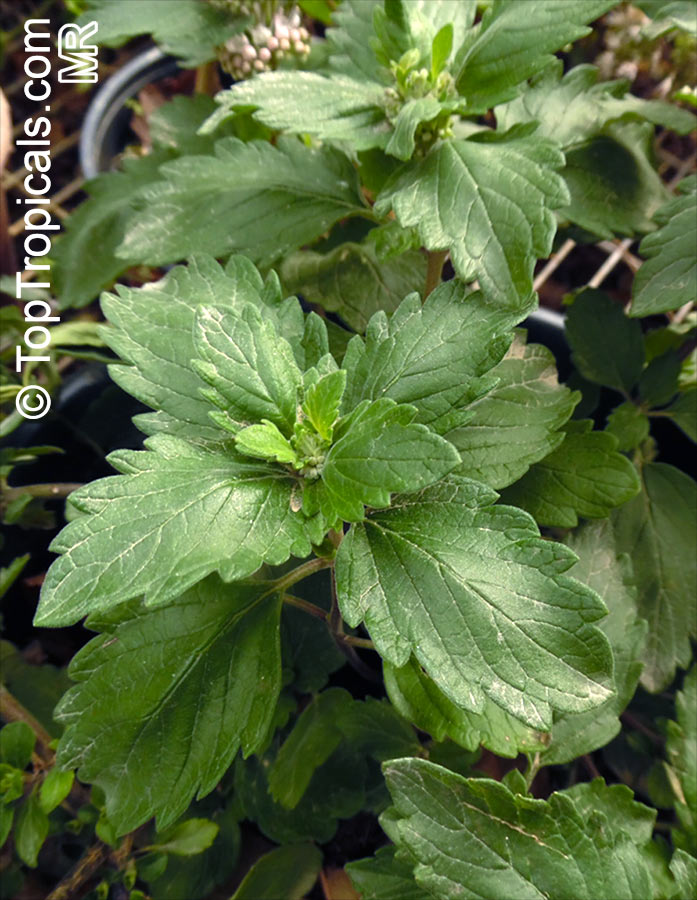
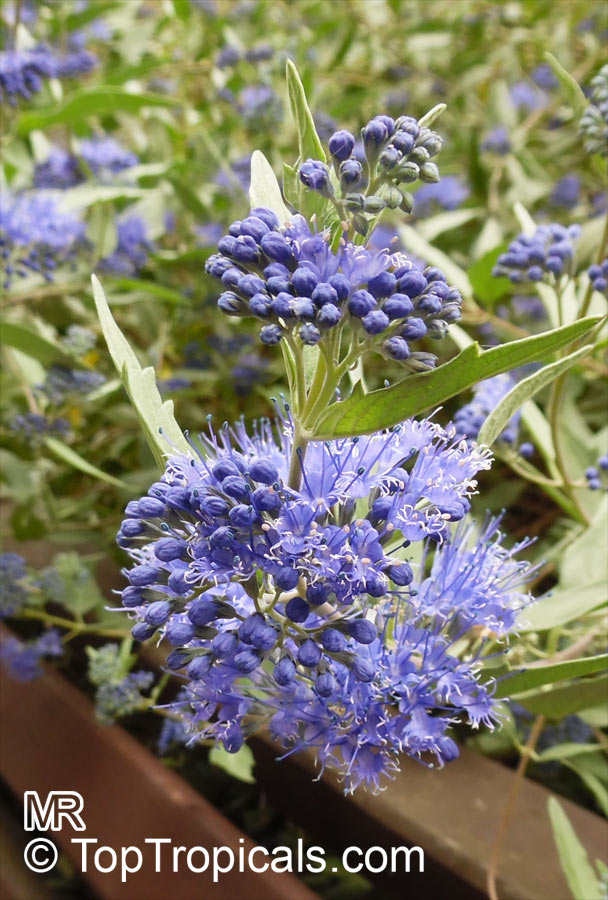
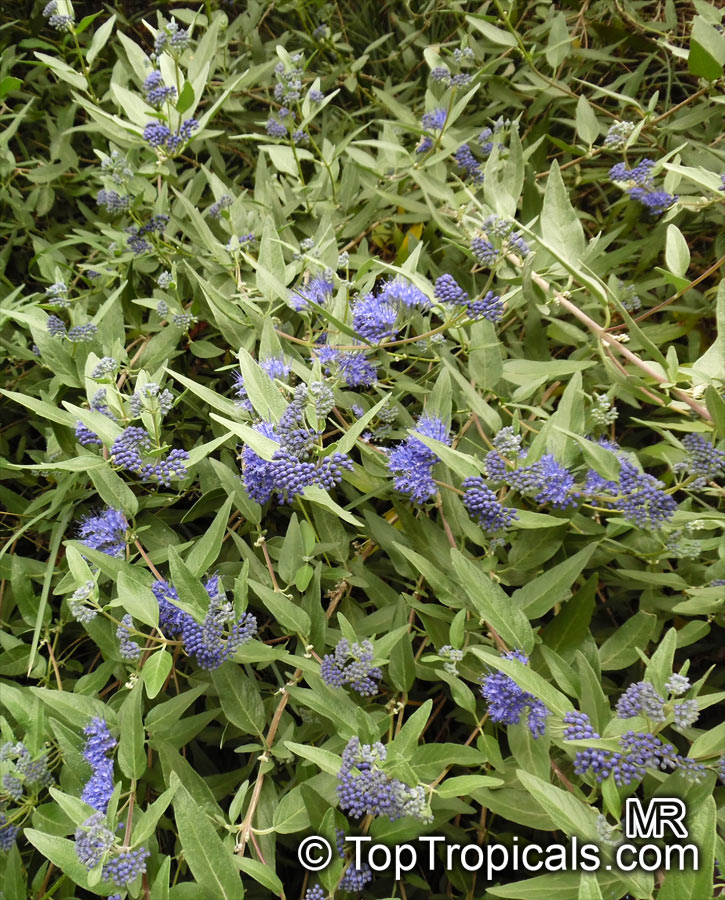
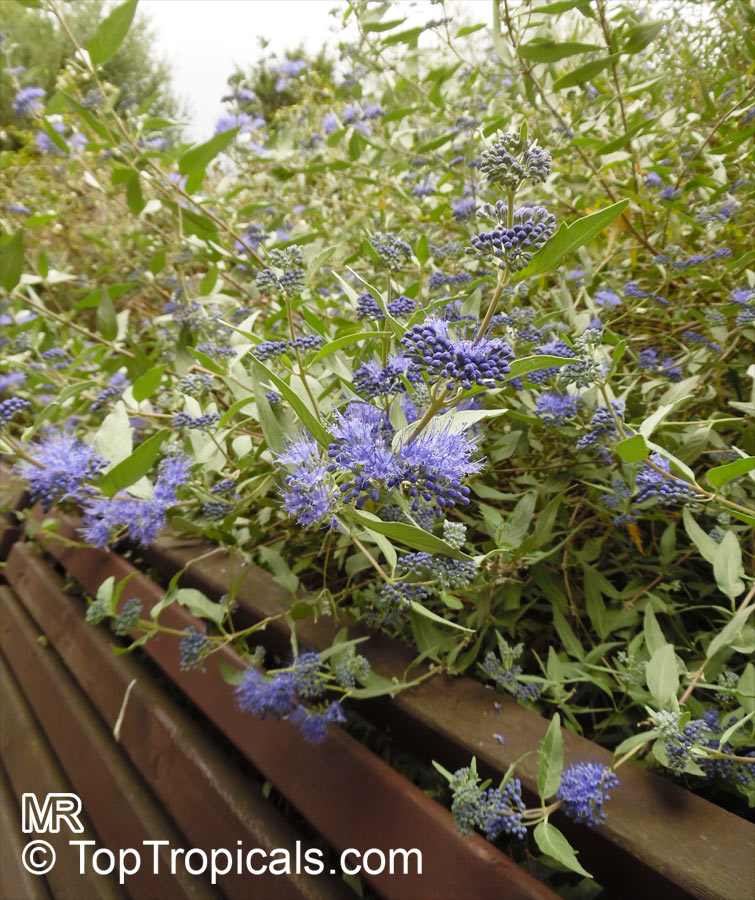
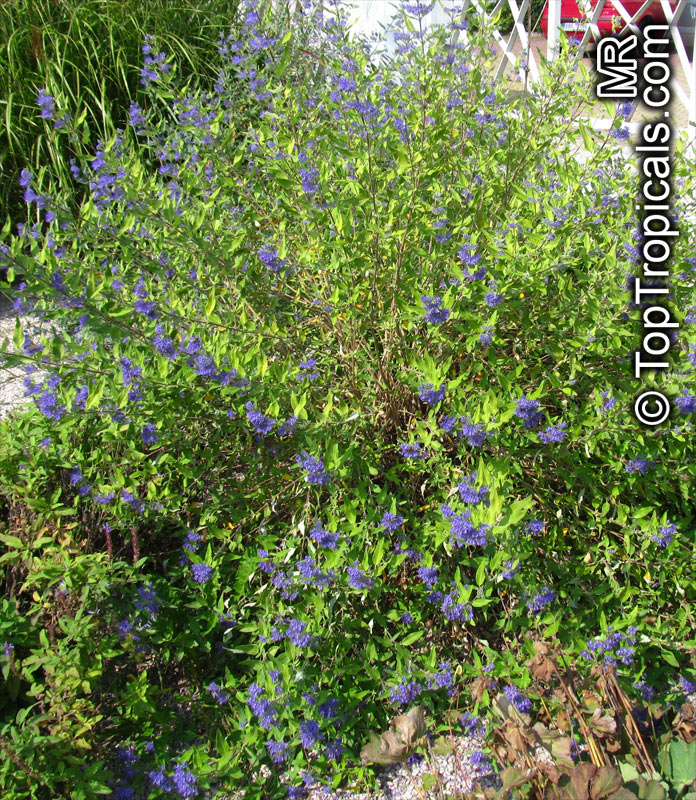
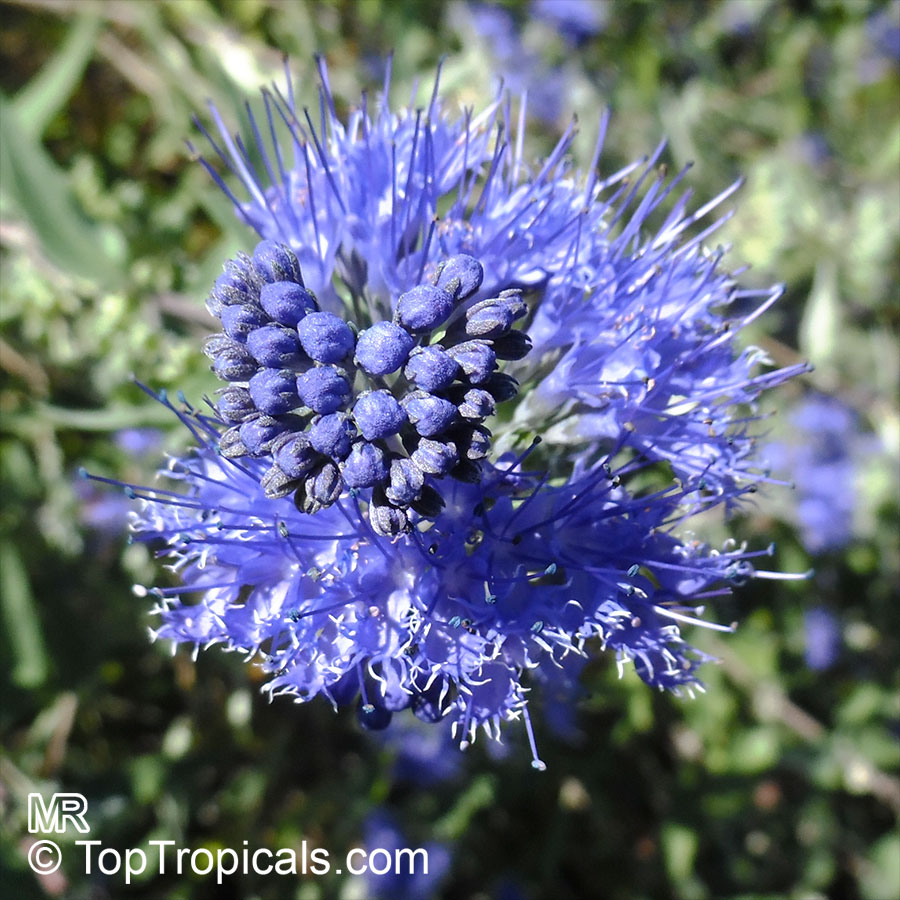
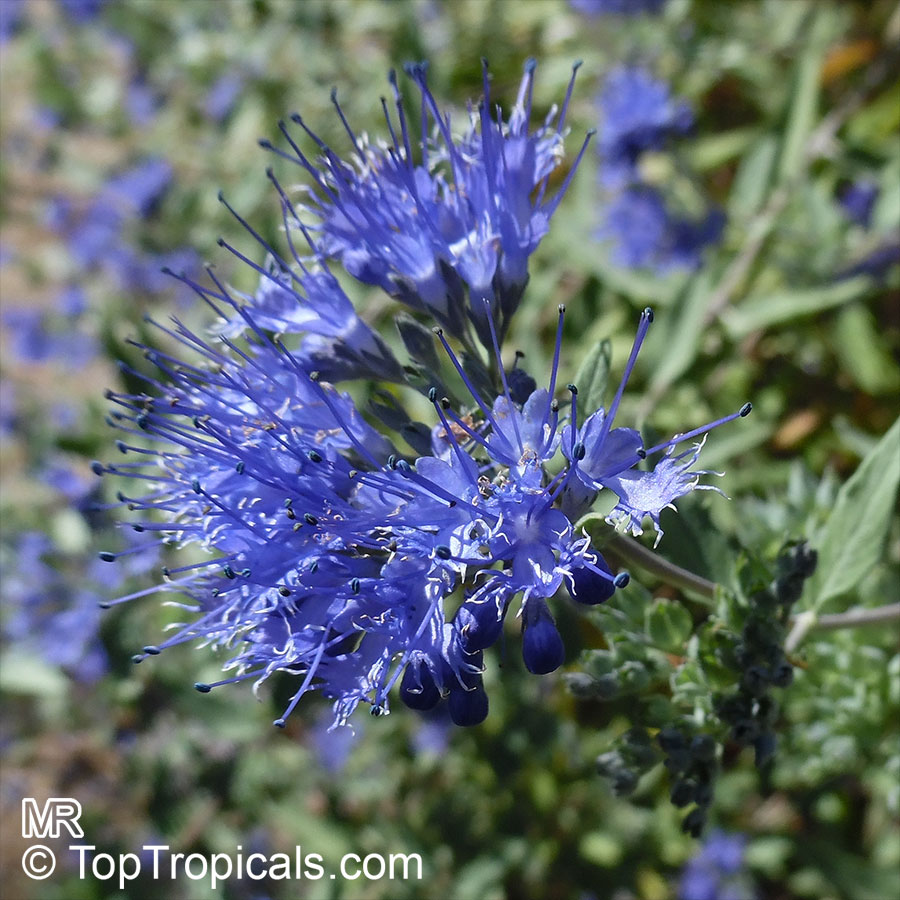
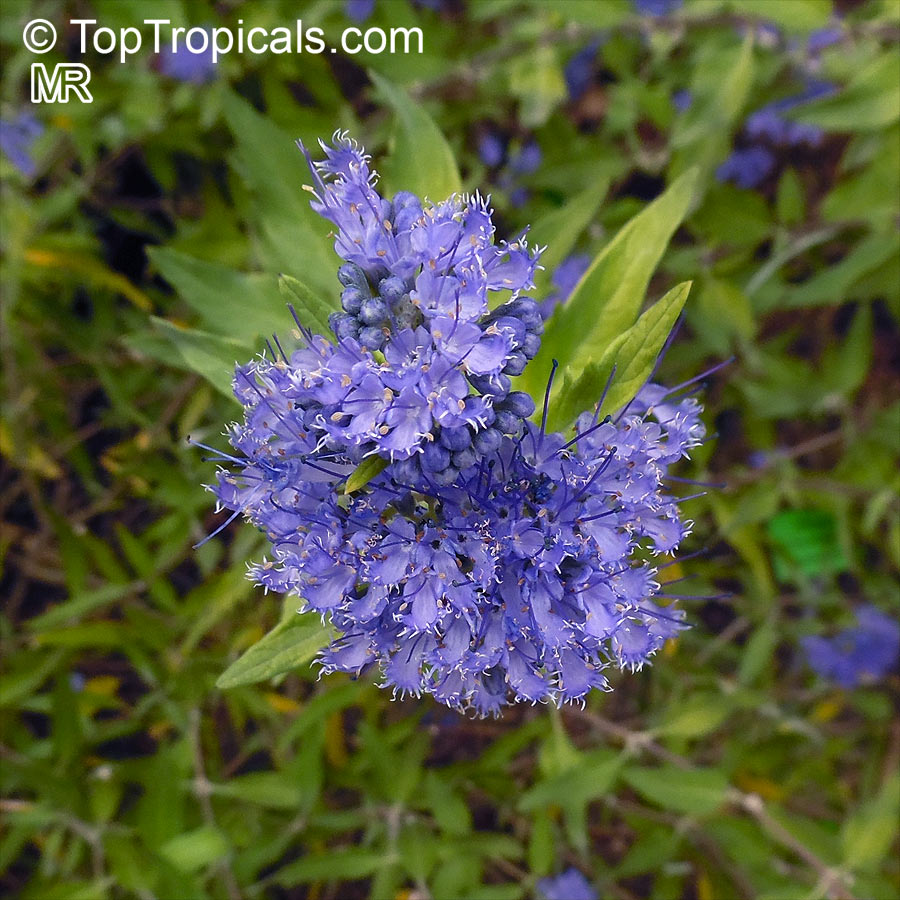
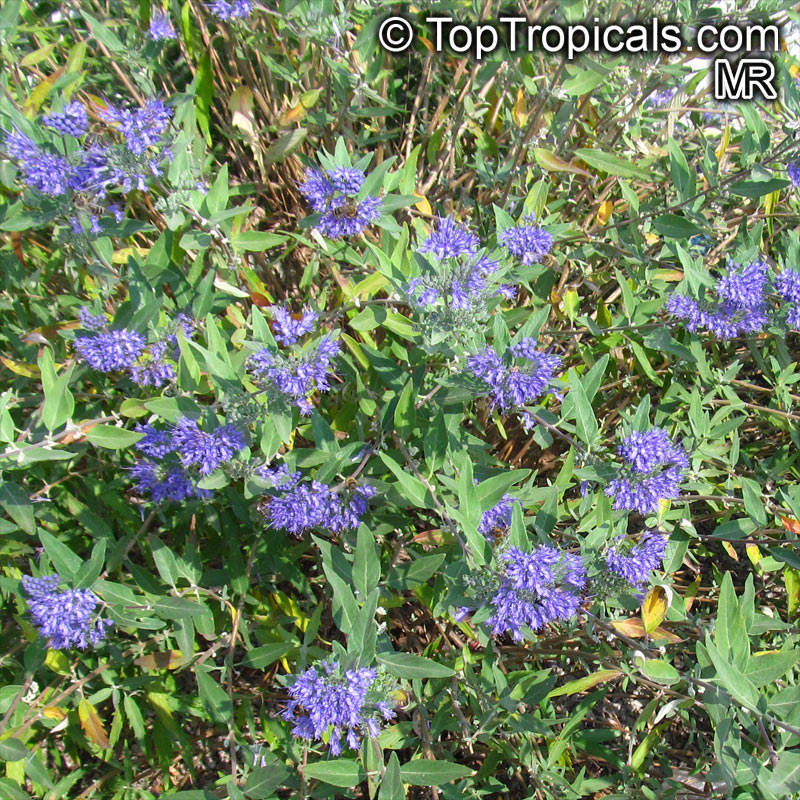
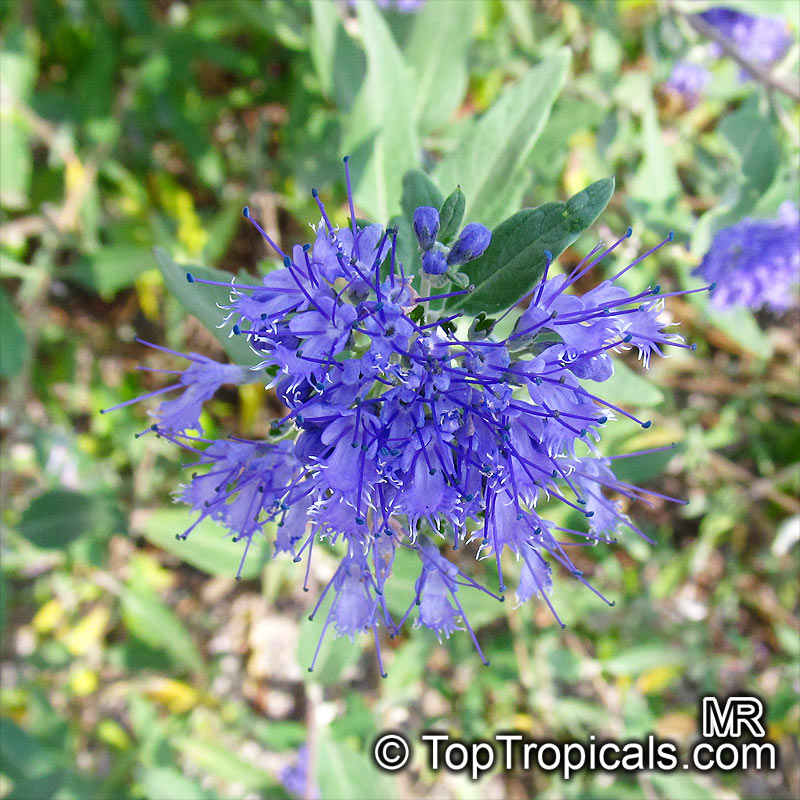
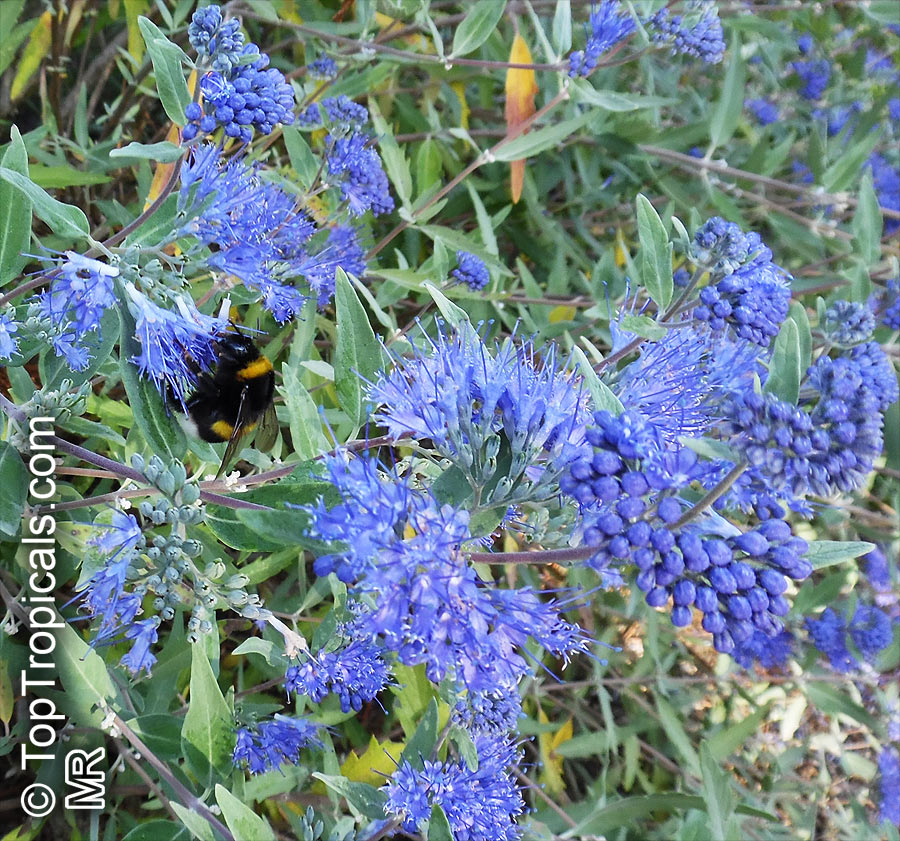
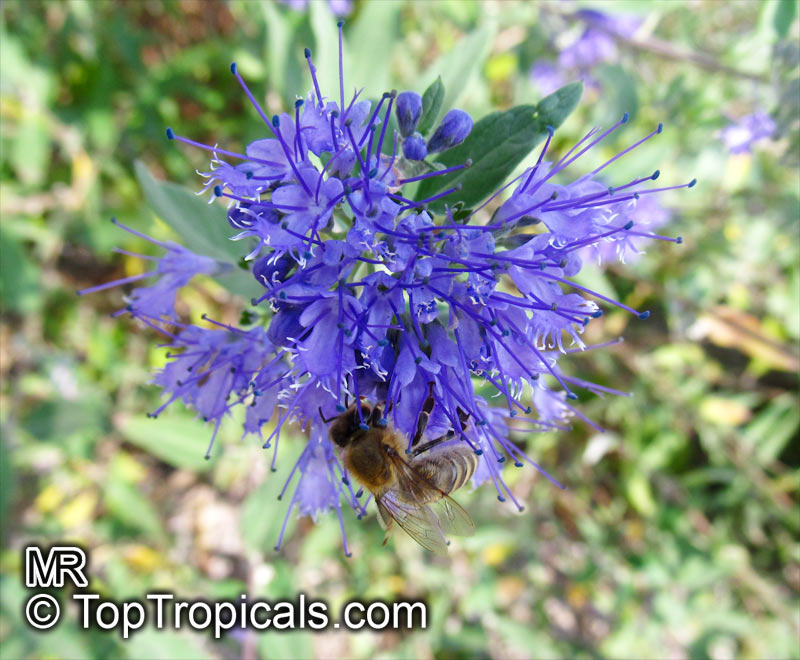
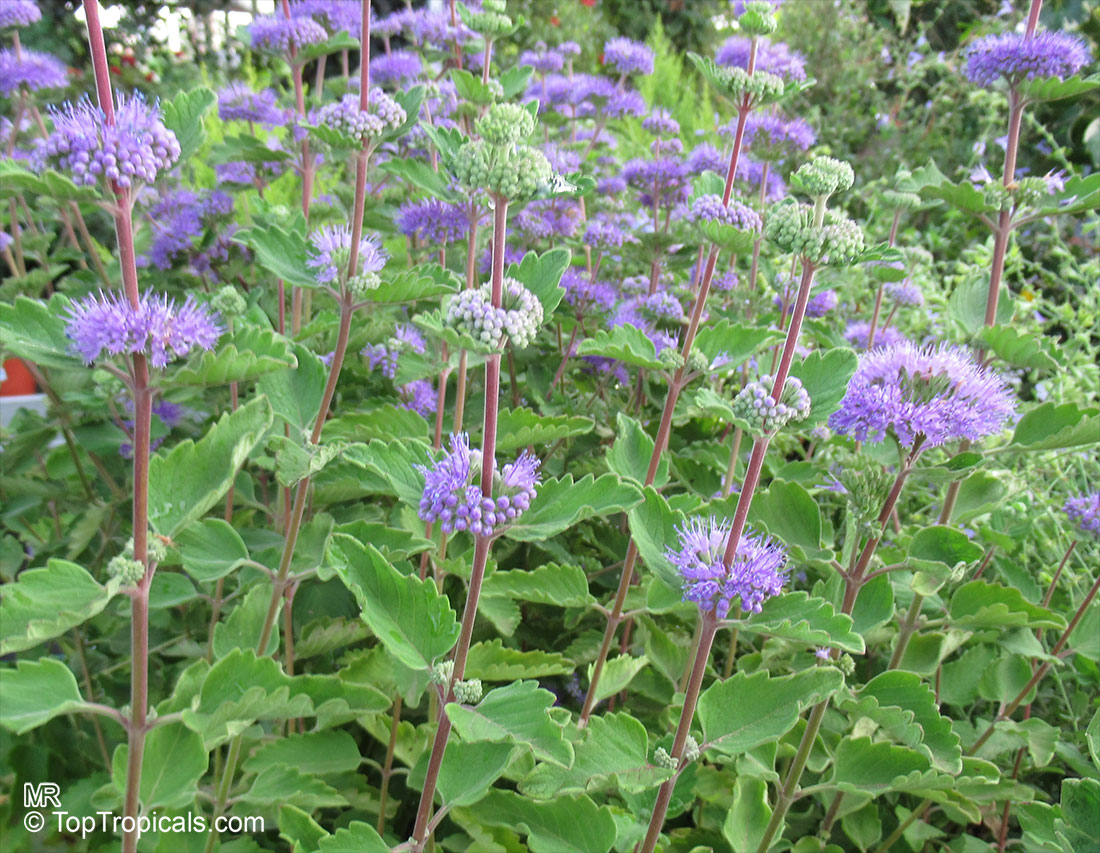
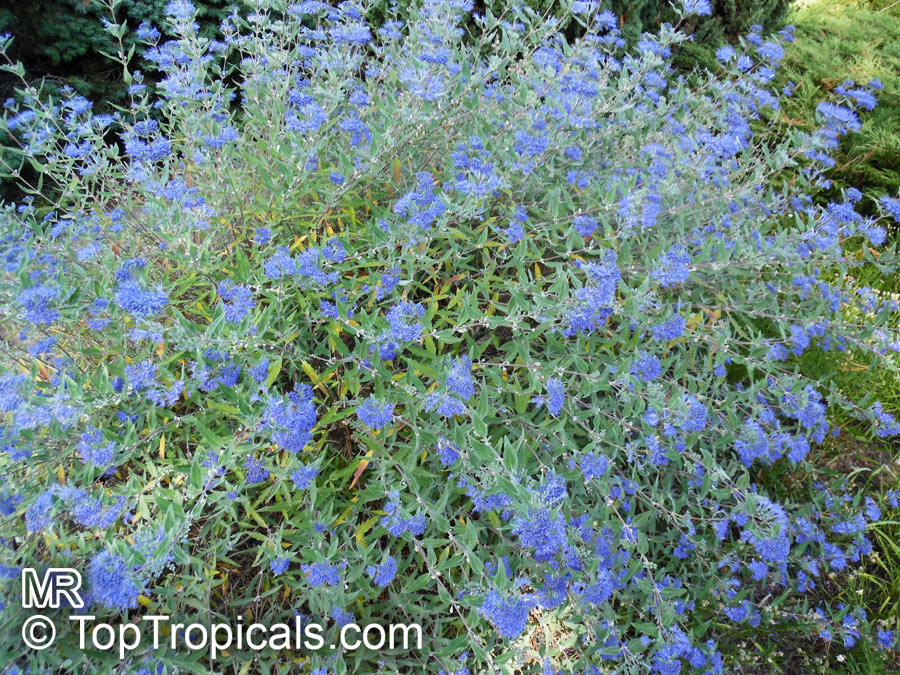
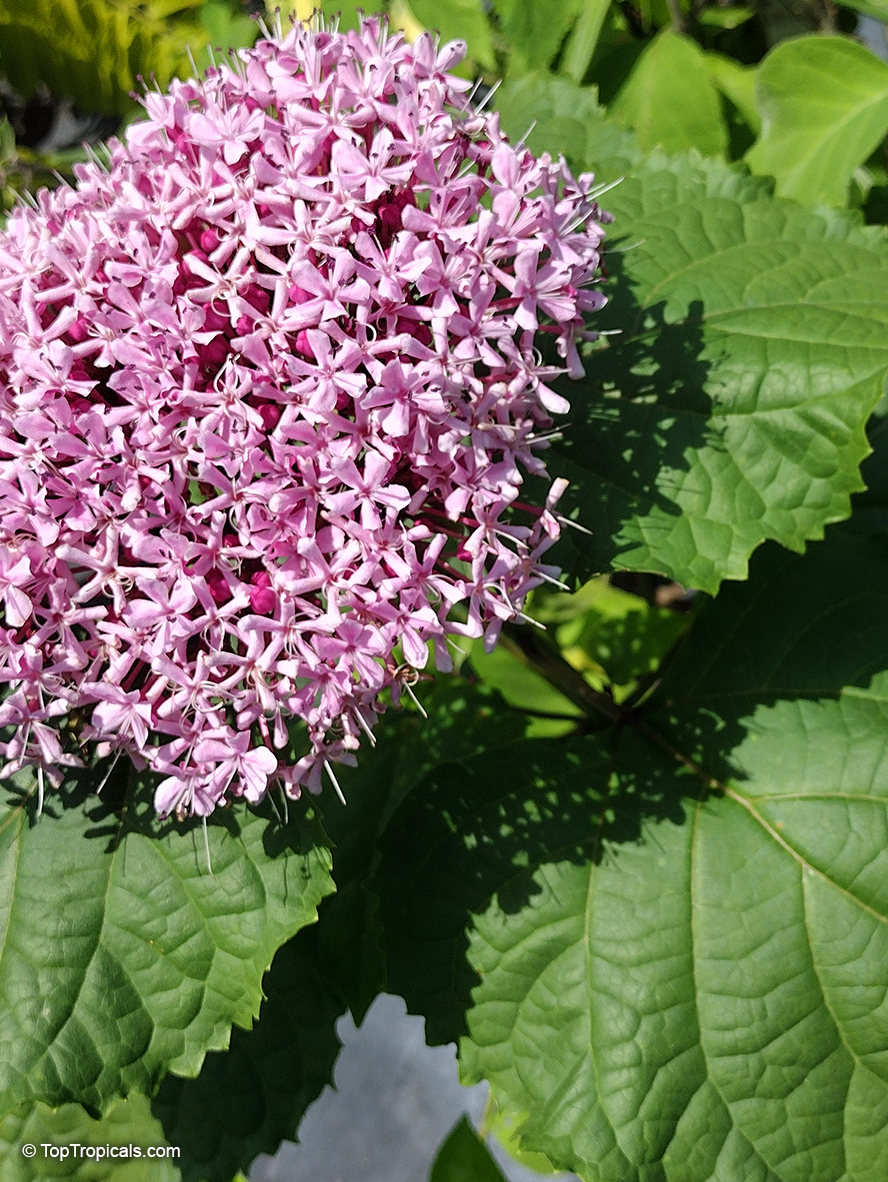

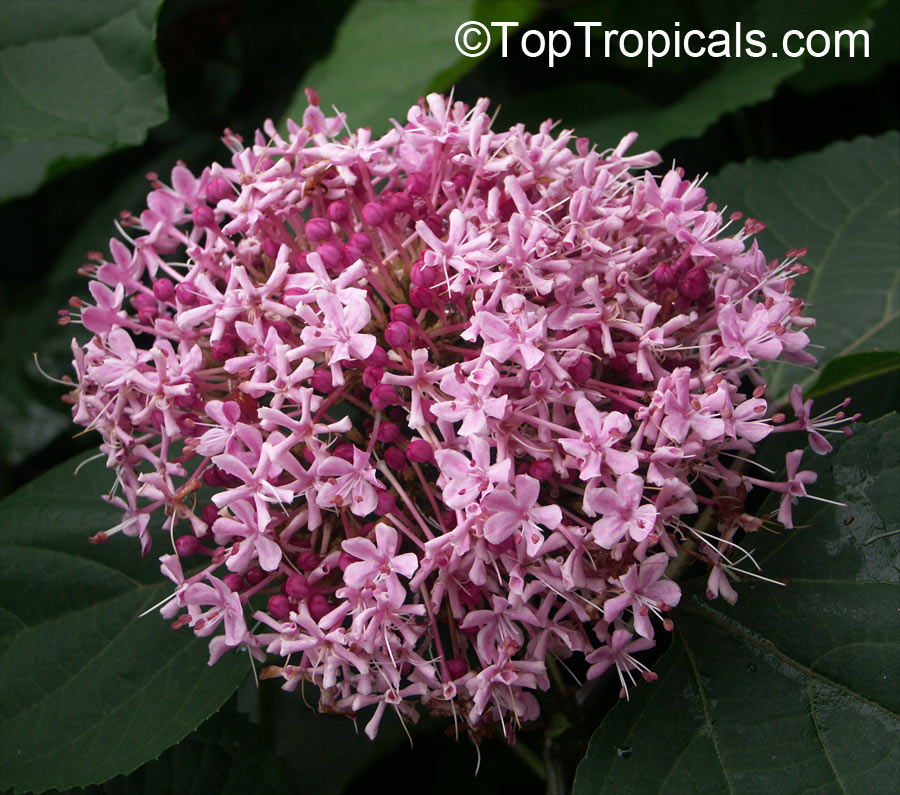
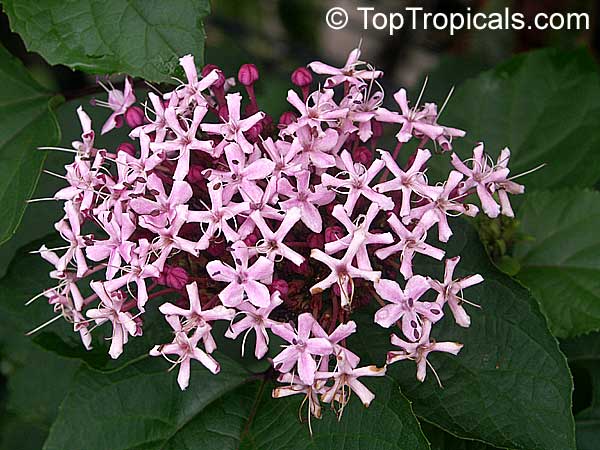
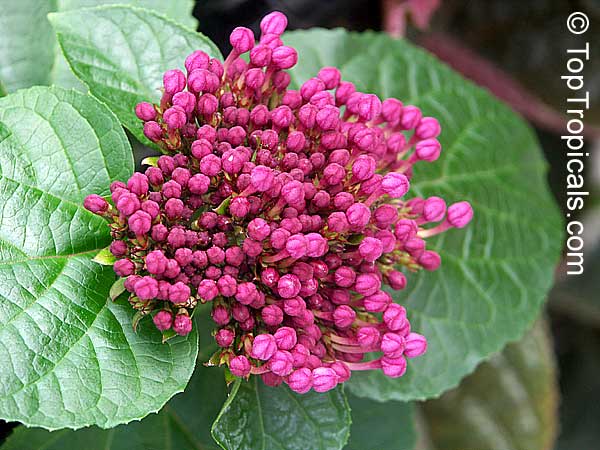
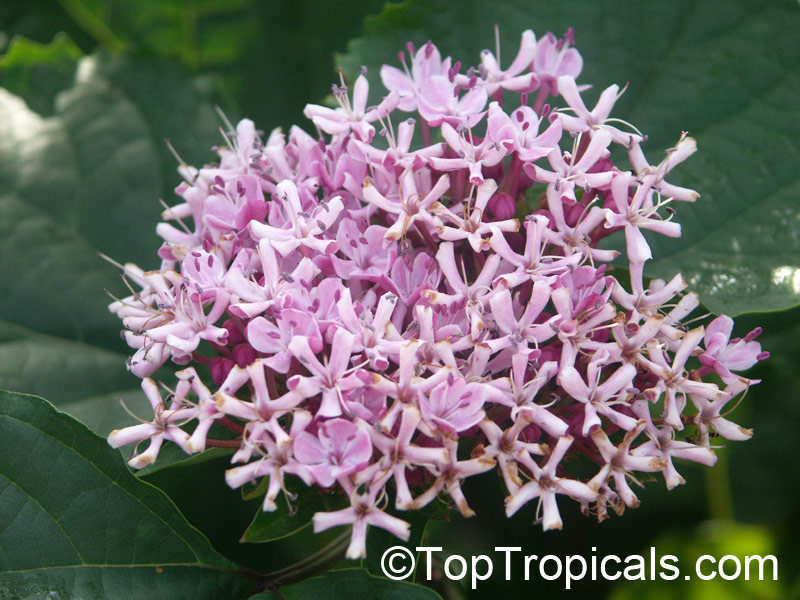
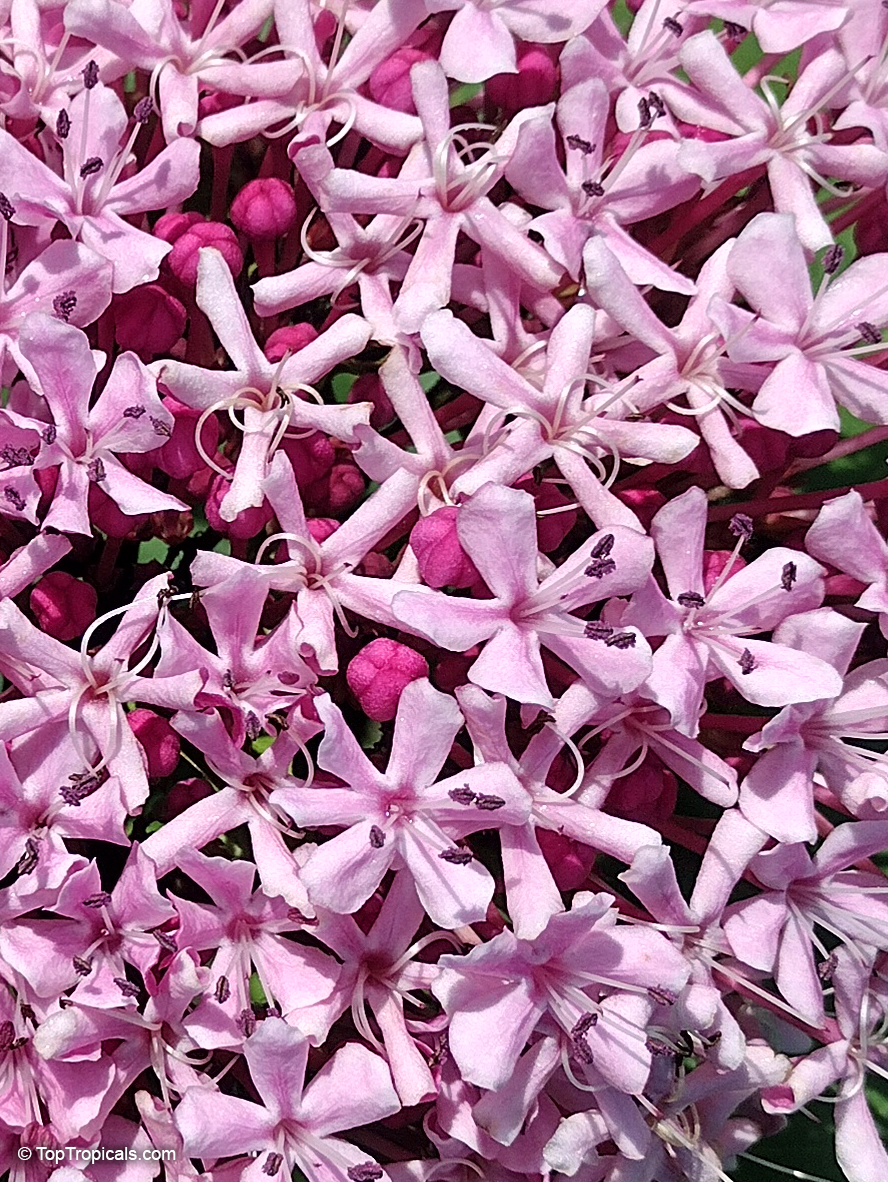
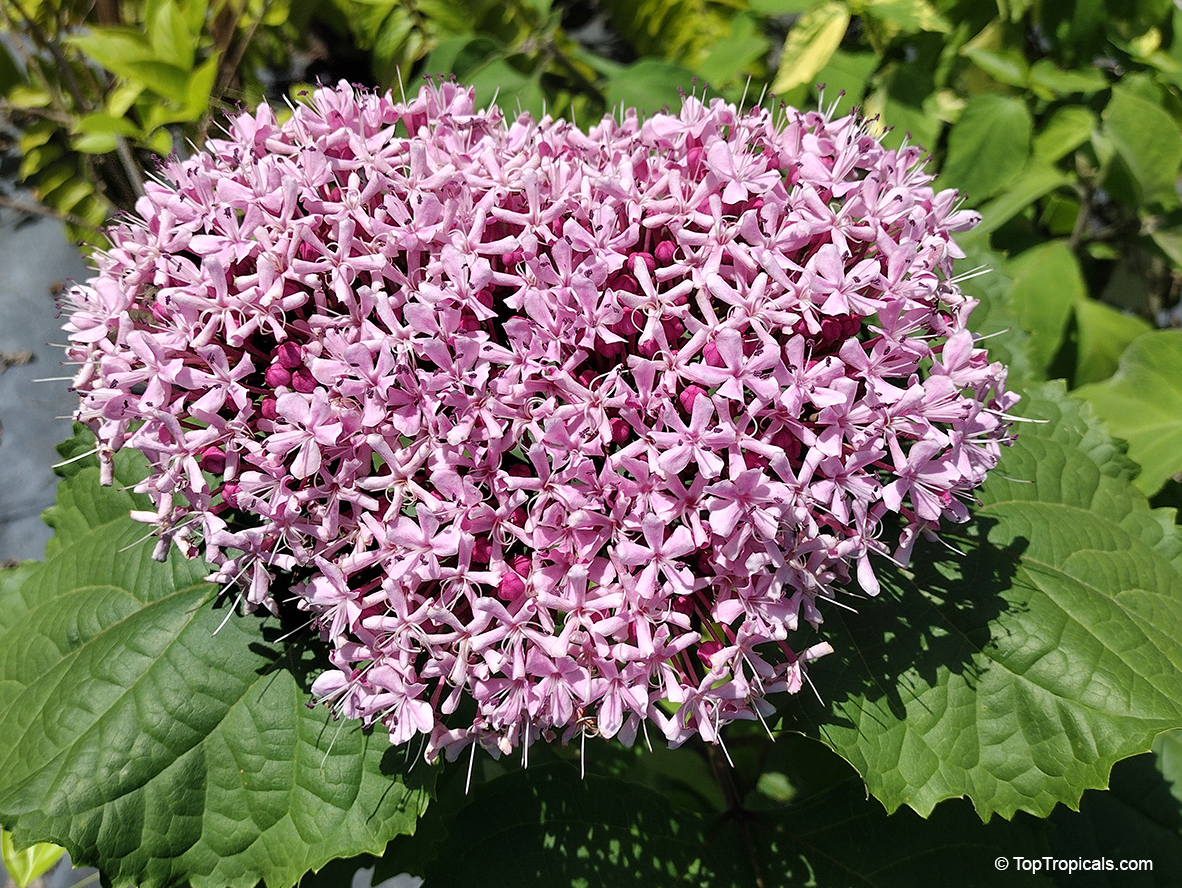
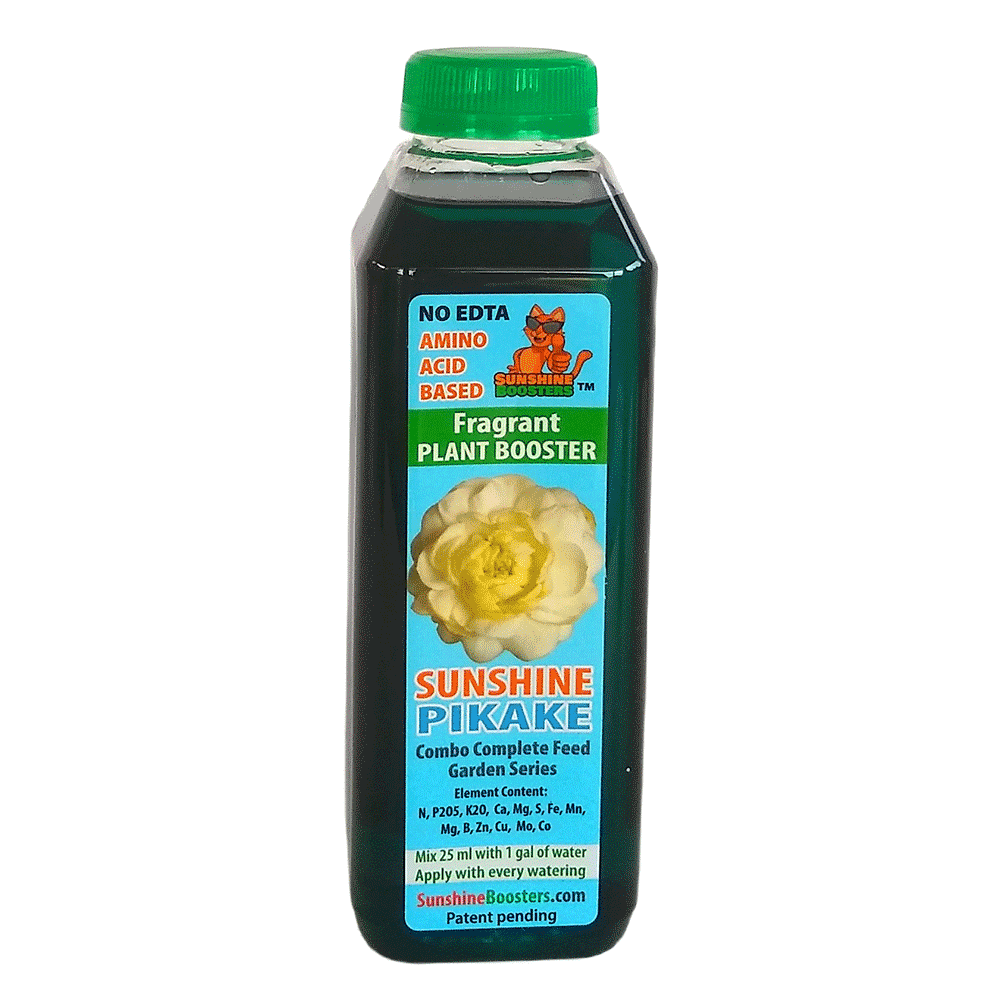 SUNSHINE Pikake (NPK 2-2-4) - eco-friendly concentrated nutrition booster for fragrant flowers. Improves quantity and quality of flowers. Encourages profuse blooming. Increases flower fragrance intensity. Can be used with every watering. For best results, use in combination with
SUNSHINE Pikake (NPK 2-2-4) - eco-friendly concentrated nutrition booster for fragrant flowers. Improves quantity and quality of flowers. Encourages profuse blooming. Increases flower fragrance intensity. Can be used with every watering. For best results, use in combination with 